I write a lot about how Japanese games are translated into English and how they change during the localization process, but there’s a lot more to look at than just games and Japanese-to-English changes. That’s why I’ve started this new series that focuses on English-language movies, how they’ve been translated into Japanese, and why they were changed.
Legends of Localization at the Movies
We actually amassed quite a collection of movies last year, but I’ve only gone through two or three so far. Here are some of what we can look forward to:

We actually got the movies for a future book project. The plan was that we’d go through them one by one over time and then release a book about the translation changes whenever we analyzed enough of them. That’s far in the future though, so for now I plan to post some of my movie findings as site articles from time to time.
Important Note
When foreign movies are released in Japan, they sometimes receive multiple different subtitle translations and multiple dubs over time. This is mostly the case for 80s and 90s movies: there’d be the original subtitled theatrical translation, a theatrical dub, a new subtitle track for TV broadcasts, a new dub for TV broadcasts, and sometimes even more versions for later broadcasts and home video re-releases.
For simplicity’s sake, we’ll only focus on one translation per movie, usually a home video subtitled version. When possible, we’ll take a peek at alternate translations too, though.
The Wizard
This time we’ll be looking at a subtitled VHS version of The Wizard, which was known as Sweet Road in Japan.
While the movie is often considered a 100-minute Nintendo commercial among gamers like us, it feels a little different when looking at it from the outside in. It’s touted more as a fun road adventure/coming-of-age movie in Japanese, hence the “Sweet Road” title. Even if you can’t read any of the Japanese text, you can see this change in focus from the art on the back of the box. It’s described as a “lighthearted and touching American road movie” and the tagline at the top says:
Heroes don’t cry. We headed to California in pursuit of the rest of our dream.
The presentation and title give it a strong “we’re going for a Stand by Me” vibe, which we’ve previously seen is a big deal in Japan.
I also came across some other Japanese materials during my research:
Anyway, let’s get this show on the road!
Movie Title
The movie title changed for its Japanese release, but the new title appears before the actual movie begins. Then, when the original title pops up in English, nothing is displayed in its place. It’s probably assumed that the audience understands that the title was changed for Japanese audiences. The back of the Japanese box randomly includes the original “The Wizard” logo too, so that connection probably helps explain the situation too.
On a different note, an 80s song plays during this intro scene. It’s left untranslated and unsubtitled though. It’s pretty normal to see songs untranslated in English-to-Japanese movie translations unless the lyrics hold some meaningful connection to the story or to what’s happening on screen at the same time. Basically, if a song is used as a decoration for setting the mood, it’s pretty normal to see it untranslated.
Also, from personal experience, Japanese companies are weird about lyrics and their songs having separate licenses, which means that even if you have permission to use a song in a video, you don’t necessarily have permission to translate the song. Those rights have to be negotiated separately. This is why anime songs don’t always get translated right away. I don’t think that’s what’s going on here, though – I feel like it’s just the standard “it’s only audio decoration” approach.
Which Parent
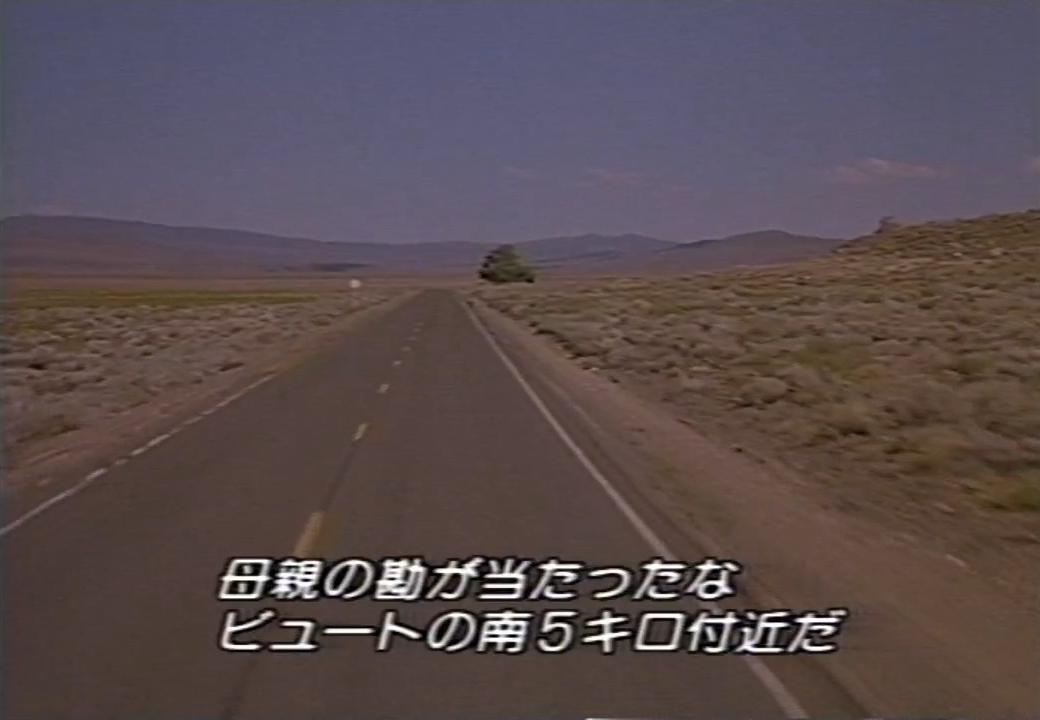
Right off the bat, there’s a line that was probably a nightmare for the translator. The audio is unclear and it sounds like a guy on the radio says “His mother was right” or “His father was right” depending on what you’re listening for. The Japanese translator went with “mother” here.
The English DVD subtitler went with something different that’s totally wrong though: “Putnam”.
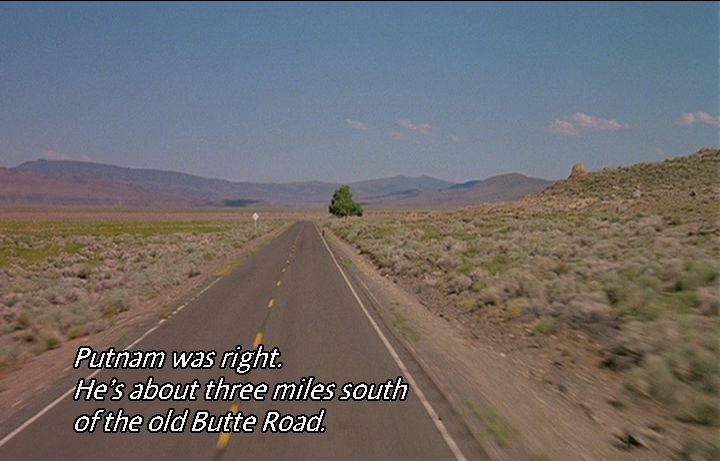
I bring this up because when translating movies, shows, or whatever else, it’s never a guarantee that you’ll get access to the original script or anything like it. Instead, you have to rely entirely on your ears, which is always a recipe for mistakes and headaches. In this case, we see that the Japanese translator did a better job than a presumably native English speaker.
Incidentally, Japanese subtitle translators tend to follow a strict set of guidelines regarding text length, kanji usage, and timing. The result is that many lines in Japanese subtitled movies are more of a bare-bones summary of what’s being said than a full translation. The translators also have to make certain judgment calls on a case-by-case basis about unexpected things.
In this instance, we see that the translator decided to convert miles into kilometers, even though the United States uses miles. Conversions like this don’t happen in every movie though – it usually depends on who the target audience is and how important it is to keep the original number.
Dairy Queen Cream
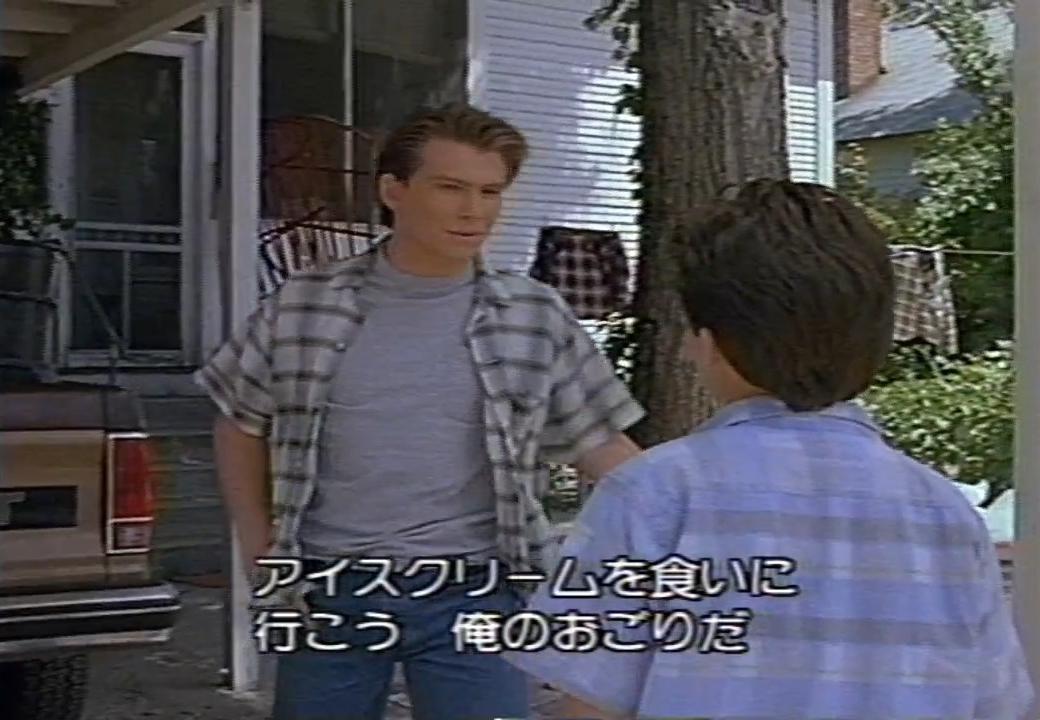
Corey (played by Fred Savage) is the main character in the movie. Here, Corey’s big brother says:
Why don’t you and I just go to the Dairy Queen and kick back a couple.
The Dairy Queen chain doesn’t exist in Japan, so to convey the intended meaning, the translator changed the line to:
Let’s go eat ice cream.
Besides dropping the restaurant reference, the translation also shows how Japanese subtitles generally look when translated. They’re a condensed version of what’s being said. Just that one part alone takes up 1.5 lines of text, so there wouldn’t be much room to say more anyway.
On-Screen Text
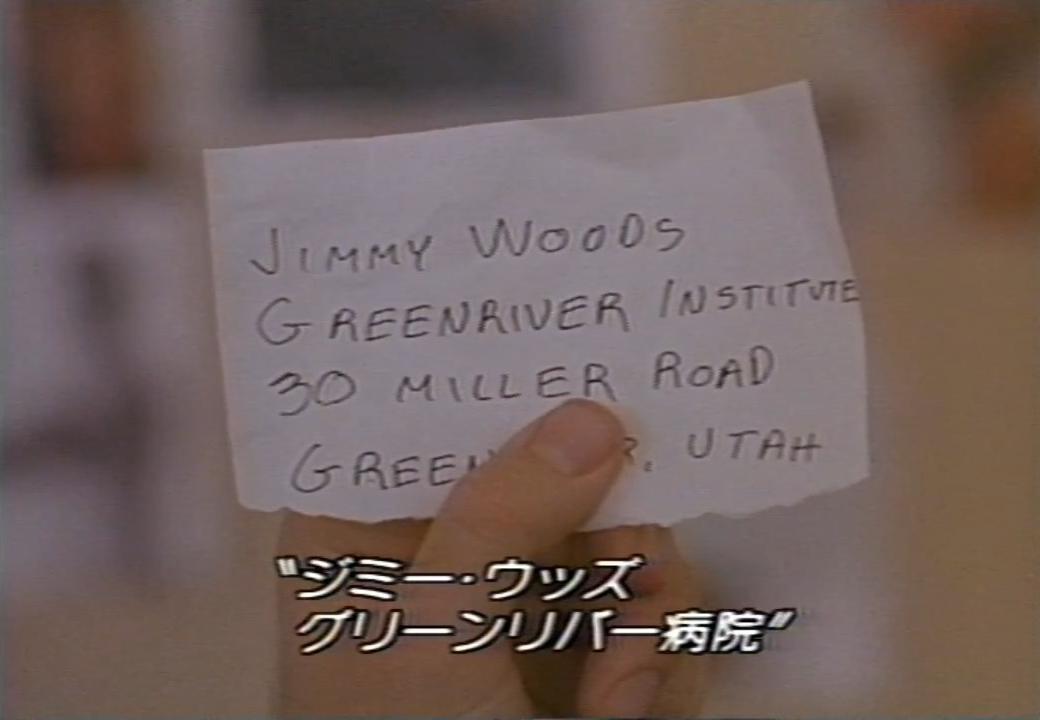
Here we can see another example of how Japanese movie subtitles don’t subtitle everything – instead, only the most important things get attention. In this case it’s partly because the paper note isn’t shown for very long, and also because the address details don’t matter too much to the audience. The fact that the movie takes place in Utah has already been established elsewhere I believe, or it will be soon.
Burned Out
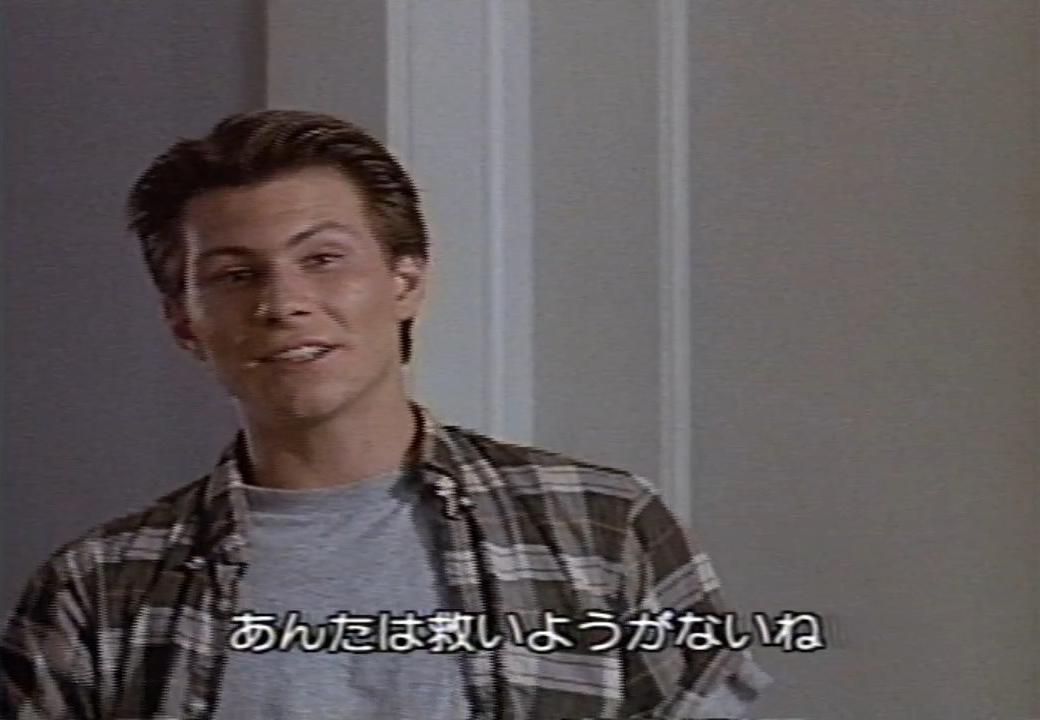
Corey’s big brother Nick insults his mother’s second husband. In English, he says:
You know, Bateman, I, uhh- I always knew that you were a jerk. I just, until now, thought it was guilt by association.
In effect, he’s insulting his mother and her second husband at the same time. It’s the sort of roundabout insult you wouldn’t expect from a plain old children’s movie. This whole beginning part of the movie has a lot of tense and complicated family situations that would fly over most kids’ heads, now that I think about it.
Anyway, in Japanese, this became:
Everyone has their flaws, but you’re beyond help.
This means he’s only insulting the second husband. The extra jab at his mom for leaving his dad is dropped.
Snack Time
Corey and his little brother Jimmy sneak into a Hostess Cupcake truck. If you live in North America you probably know what kind of foods to expect inside it. Elsewhere in the Japanese script it’s referred to as a “cake shop truck”.
The boys secretly ride in the truck. Once they manage to sneak out, Corey asks his little brother:
How about that cupcake? You got plenty of Twinkies. Personally, I’m a Ho Ho man myself.
Twinkies weren’t particularly well known in Japan at the time, and Ho Hos were definitely unknown then. As a result, the translator changed this line to:
How many cakes did you eat? They sure were good, huh? I feel re-energized. How about you?
Undoubtedly, part of the reason for the change is that the audio is very quiet because they’re walking in the distance. So it appears the translator misunderstood what was being said but could at least tell it was about the snacks.
Goblin Valley
Corey jokes about how they’re stuck in “Goblin Valley” for the night. In Japanese, the “Goblin” part was translated as 鬼 (oni).
A few lines later, Corey jokes again and says:
Why not Axe Murderers Valley?
This part was translated as 殺人鬼 (sastujinki, "bloodthirsty killer"). But what’s neat is that this word also uses the 鬼 character, which is a connection that doesn’t exist in the original text. So the translator was able to do a neat joke swap based on it:
Wait, it’s not 鬼 as in 殺人鬼, is it?
It’s hard to explain, but there’s an actual funny joke here in the Japanese version, despite length restrictions and time restrictions and all that.
Mental Insult
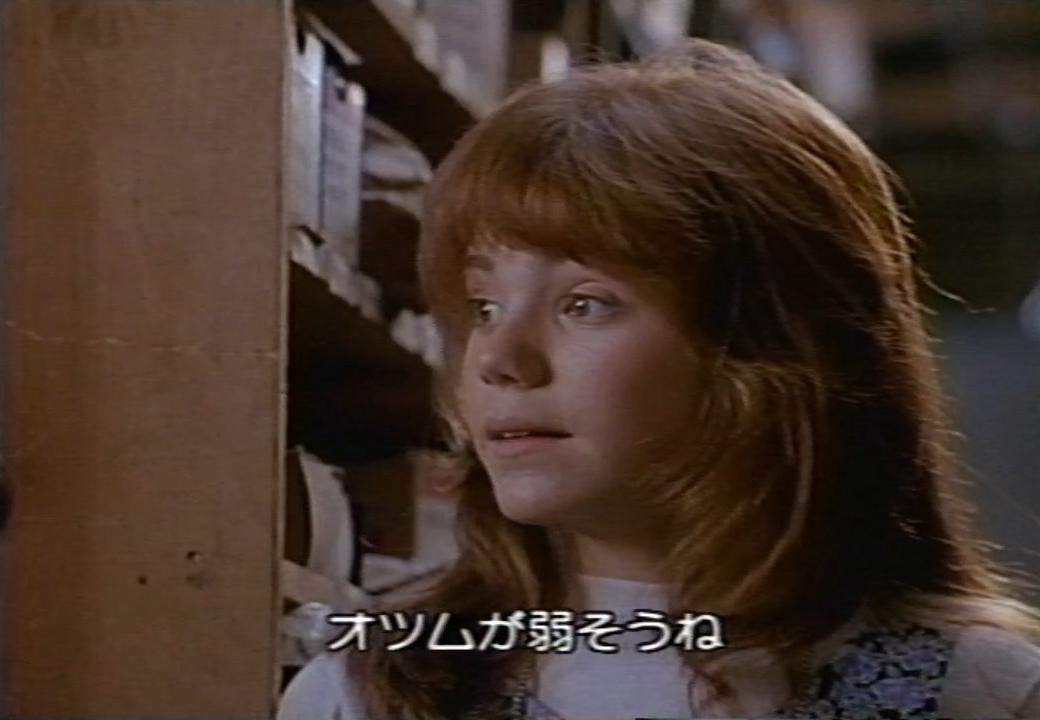
A girl named Haley shows up and harasses Corey and Jimmy. Jimmy has some mental trauma and has trouble dealing with people. At one point, Haley throws an insult his way:
Haley: What’s his problem?
Corey: He’s… just shy.
Haley: Shy a few bricks, I’d say.
This sort of sarcasm is common in Western entertainment but doesn’t translate well into Japanese. But we can tell that the translator at least tried:
Haley: What’s with this kid?
Corey: Nothing. Why?
Haley: I’d say he looks like weak in the head.
She actually uses the baby word for “head”, which by itself suggests that Jimmy isn’t very mentally developed. She also says it looks weak. The turnaround joke on “shy” is missing in the translation though, so Haley’s final response seems less of a joking jab and more of a straight-up jerk thing to say.
Anyway, whenever sarcasm ever pops up in a movie line, it’ll usually get translated into Japanese as something more straightforward like this, if it gets translated at all.
Extra Dots
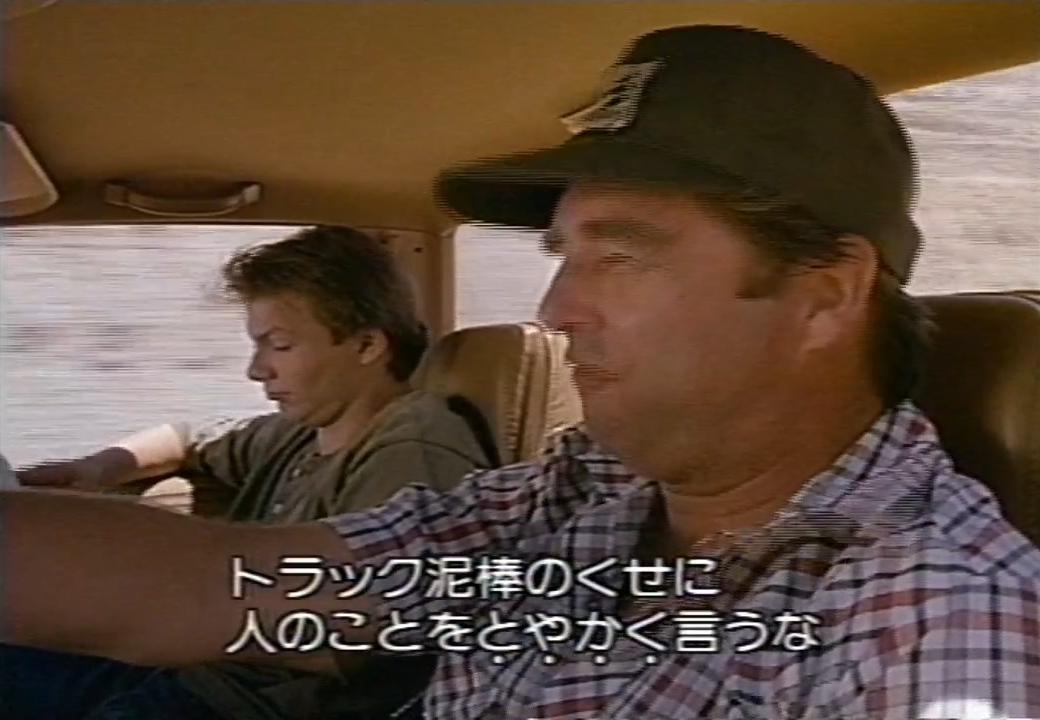
Japanese subtitles often put dots above or below certain characters like we see here. They’re used to emphasize words – sometimes to point out puns, but sometimes to put a focus on intonation or intent. It’s sort of like how we use italics in English, combined with how we sometimes use quotation marks around certain phrases.
In this case, part of the phrase “you’re in no position to criticize” is being emphasized.
Wizard Name
Haley sees that Jimmy is really good at video games and calls him “a wizard”. This is clearly where the movie title comes from, and the “Wizard” nickname gets repeated a few more times throughout the movie.
In Japanese, Haley calls him a 天才 (tensai), which refers to being a genius, a gifted person, or a natural at something. In short, the translation fits the original line. But the very act of translation – plus the fact that the movie has a new name – means the connection between the nickname and the title could no longer exist.
Incidentally, whenever the jerk game rival uses the “Wizard” nickname in jest, he says tensai-kun rather than just tensai. It provides an extra layer of mockery that’s not found in the English script but can be heard from the English intonation.
No Ninja No Ninja No
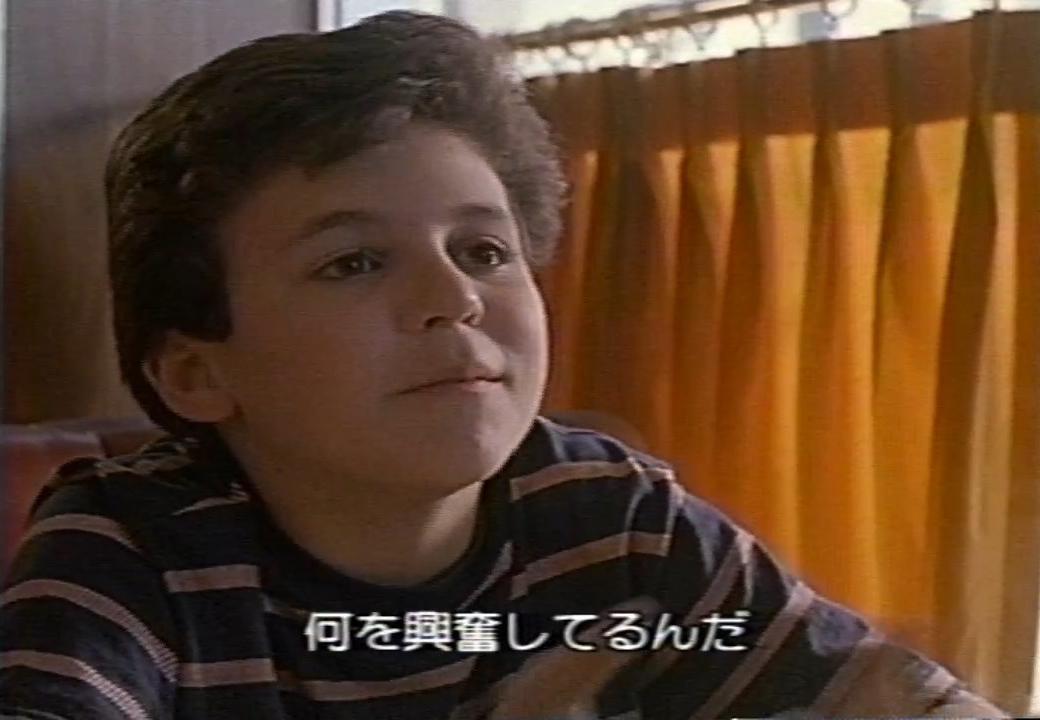
Haley realizes that Jimmy is a game playing wizard. In response, Corey says:
So he can play Ninja Gaiden. So what?
The name was dropped in the translation here, and the line was flattened into:
What are you so excited about?
On a side note, it’s strange that Haley says “Look at him! He’s making the jump. It’s his second time through and he hasn’t even taken a hit yet.” But meanwhile we see on the screen that it’s the start of Level 1 of Ninja Gaiden and he has taken a hit already. Two, in fact!
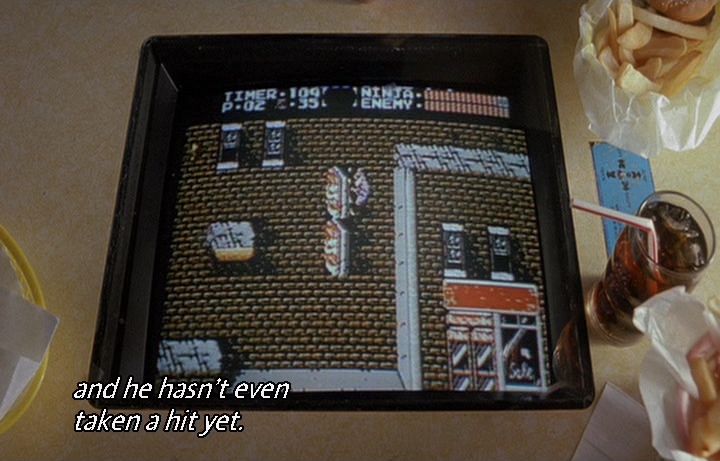
The whole movie is filled with so many obvious mistakes that it makes me wonder how feasible it’d be for a fan to insert new, proper footage in place of all these mistakes 😛
Warped Zone
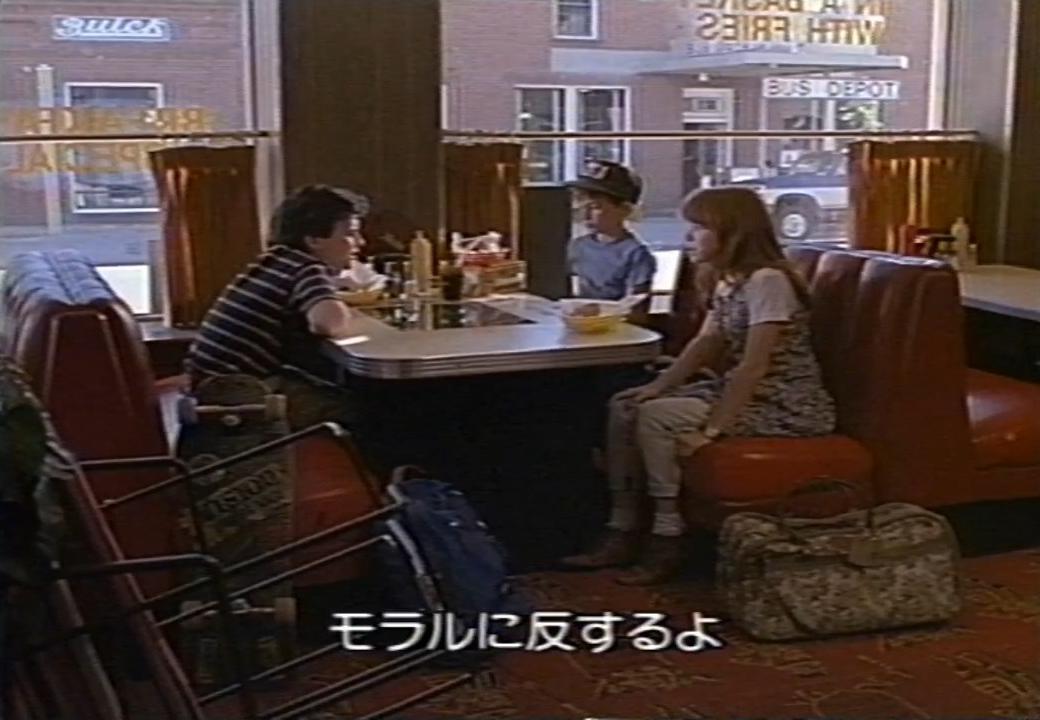
Corey says, “Are you kidding me? That’s warped.” in response to Haley’s suggestion that Jimmy compete in a video game tournament for money. In Japanese, this became “That’s against my morals.”.
Tournament Name
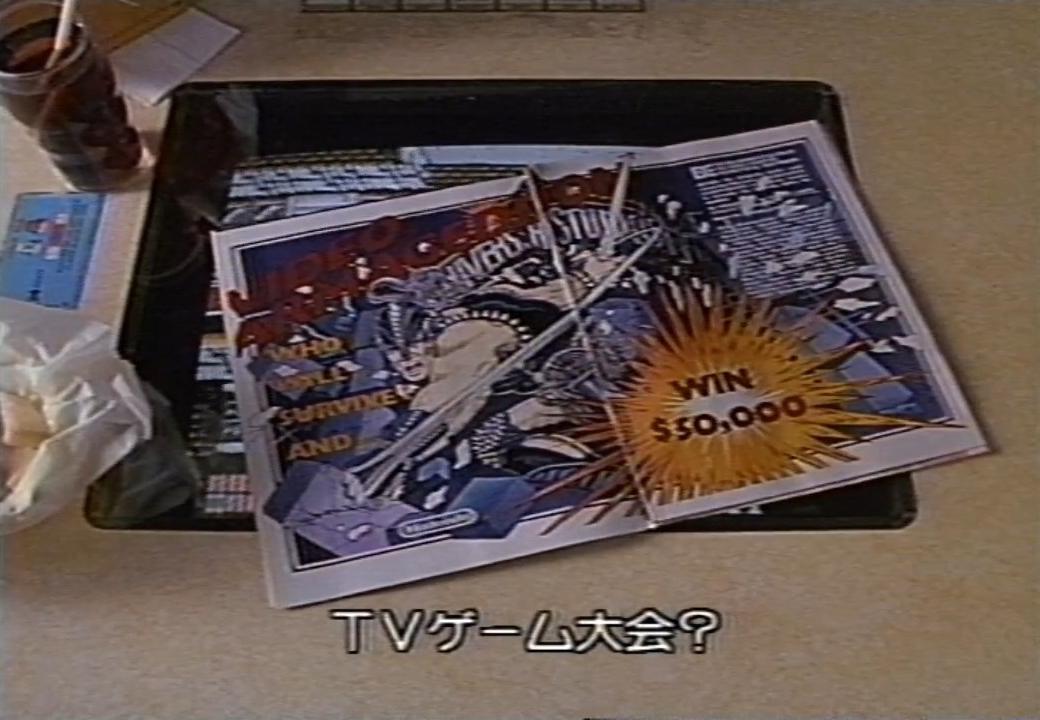
The big video game tournament in the movie is called “Video Armageddon” in English. In the Japanese subtitles, the name is usually either dropped or just called a “video game tournament”. Although there is one part during the tournament when the robotic announcer lady in the background calls it the TVゲーム世紀の大決戦, which translates as something like “Video Game Showdown of the Century”.
Geography Goof
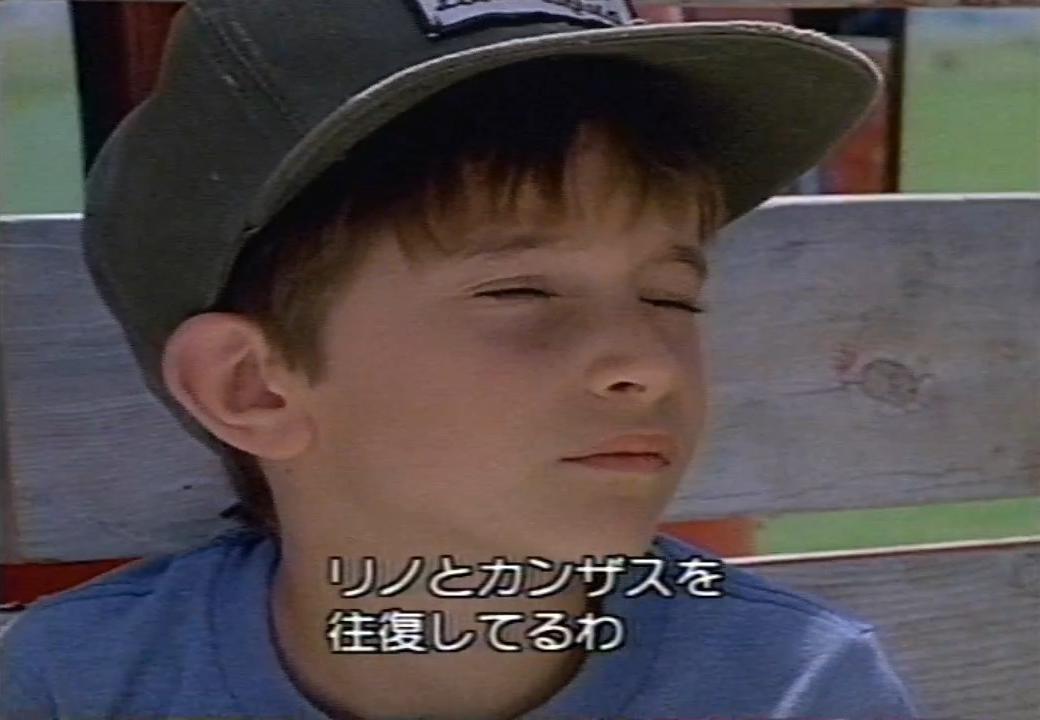
Haley mentions that her father is a trucker who travels all over the place. In English, she says:
He makes a weekly run between Reno and Kansas City.
In Japanese, this became:
He makes runs between Reno and Kansas.
Basically, the translator heard “Kansas” in the original line and put “Kansas” in the translation. But it’s actually Kansas City, which isn’t necessarily the same thing. Besides translating a city name as a state name, there are actually two Kansas Cities, one in Kansas and one in Missouri.
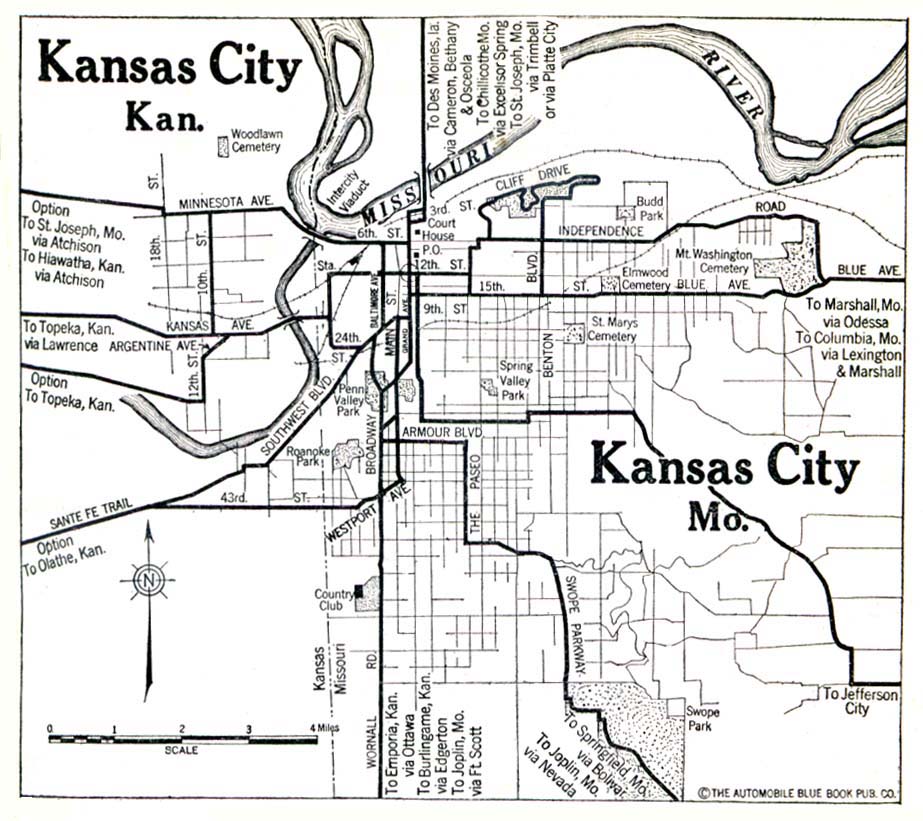
Granted, both Kansas Cities lie along the border between Kansas and Missouri, but the Missouri one is the big one everyone tends to think about and is almost definitely the one being referred to here. Which would make the “Kansas” translation incorrect here.
Getting Personal
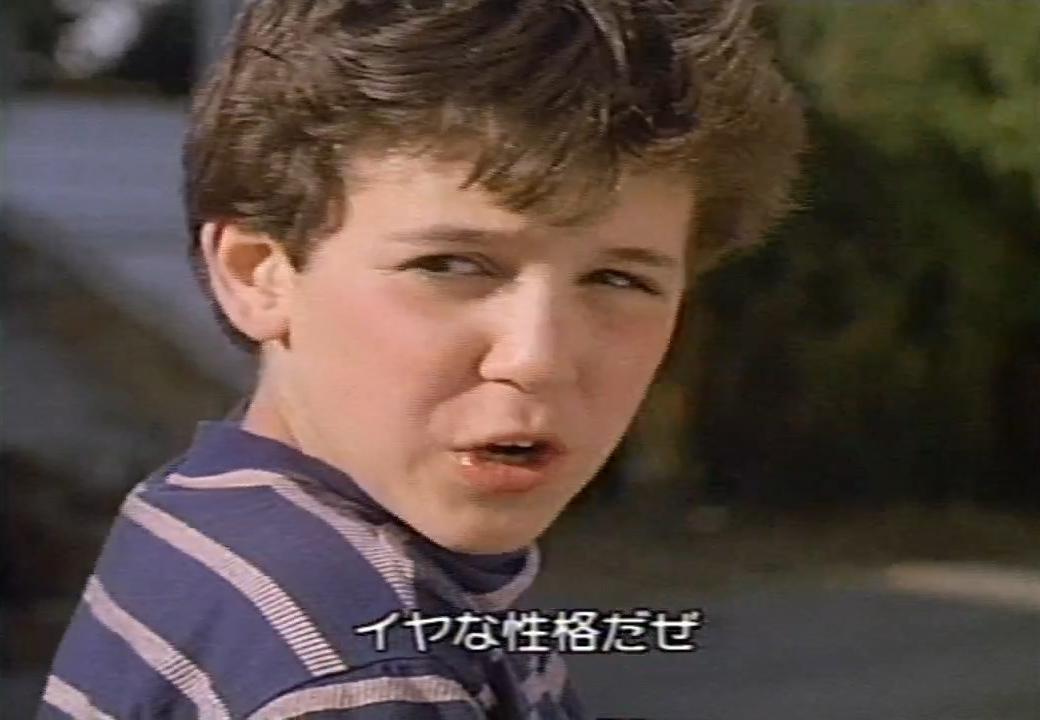
The kids have all of their money stolen, but Haley knows that Corey has some stashed away in his underwear. She demands that he hand over the money, which requires Corey to dig into his underwear for a second.
In response to this demand, Corey says in English:
You’re gettin’ awful personal, you know.
He says this as he’s reaching into his shorts, hence the slightly naughty quip about Haley “getting personal”.
In Japanese, this joke was either missed or was translated literally:
You’ve got a bad personality.
This makes me wonder if the translator misheard “personal” as “personality”, or if the translator didn’t get the joke in the first place.
Car Game
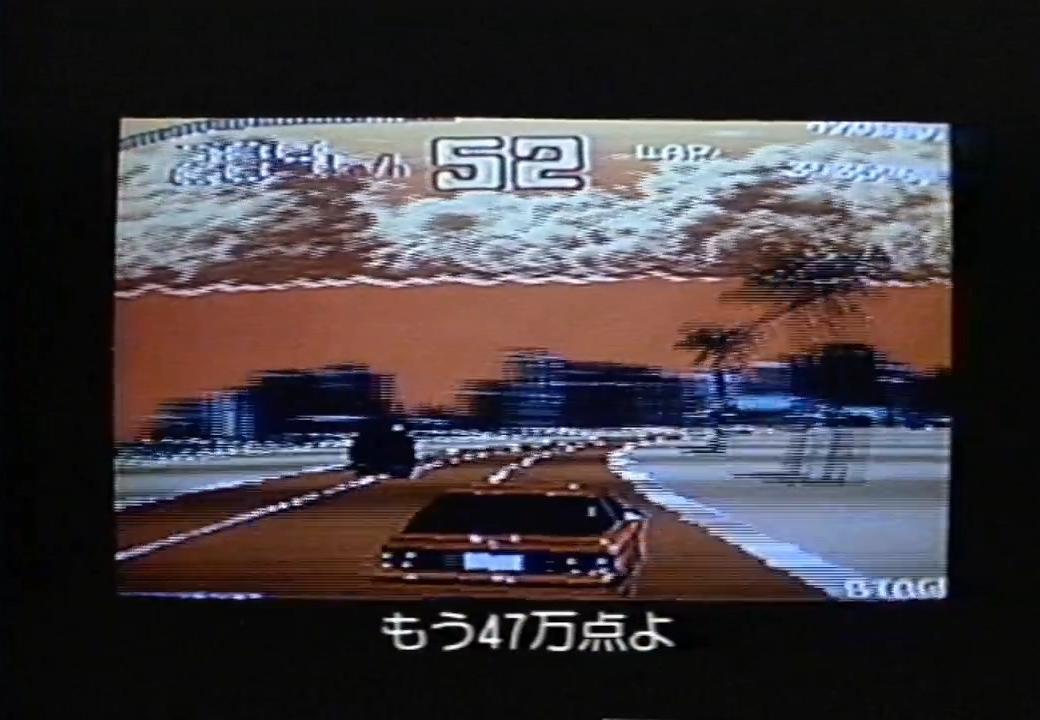
Lots of games get their names removed from the Japanese subtitles. In this instance, Haley says:
470,000 and climbing on F1 Dream.
In Japanese, this turned into:
He’s already at 470,000 points.
I don’t think I’ve ever heard of F1 Dream outside of this movie, so I nearly missed this removal when watching the movie for this article. The name is written right on the arcade cabinet though.
Poster Child
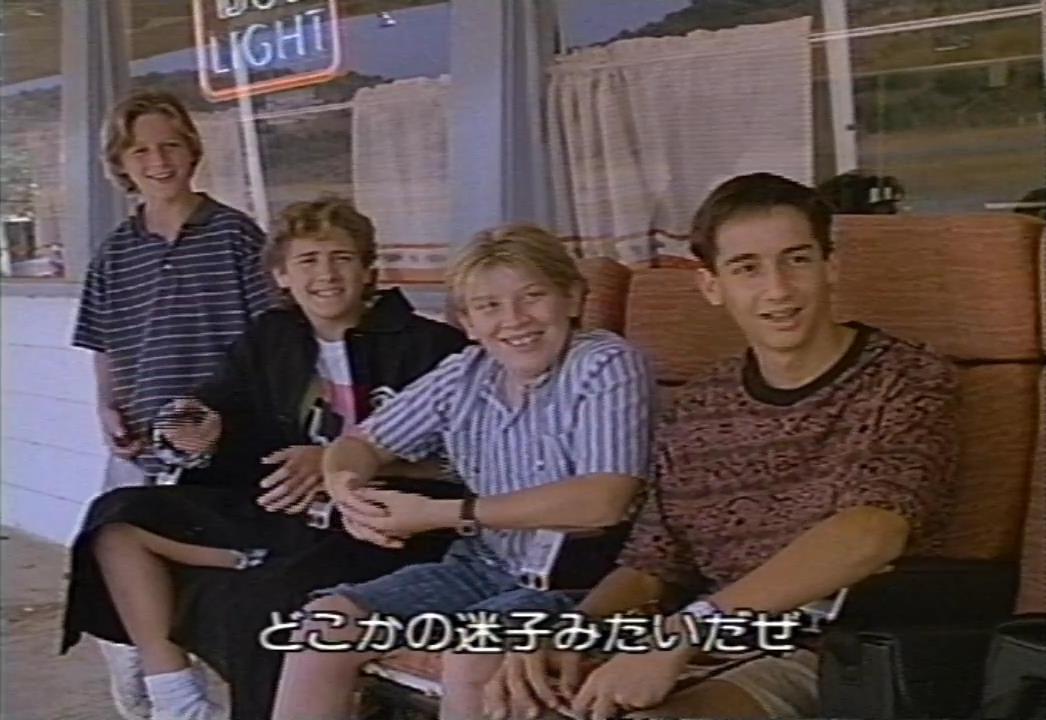
The movie’s big video game rival, Lucas, insults Jimmy. In English, he says:
This guy? I don’t get it, is he like a poster child for someone?
This “poster child” insult is a jerk way of saying that Jimmy looks mentally handicapped in some way.
In Japanese, the line changed to:
This runt? He looks like some lost kid or something.
The end result is that Lucas still insults Jimmy, but it’s much weaker and doesn’t seem to have the same insinuation.
Glove Reveal
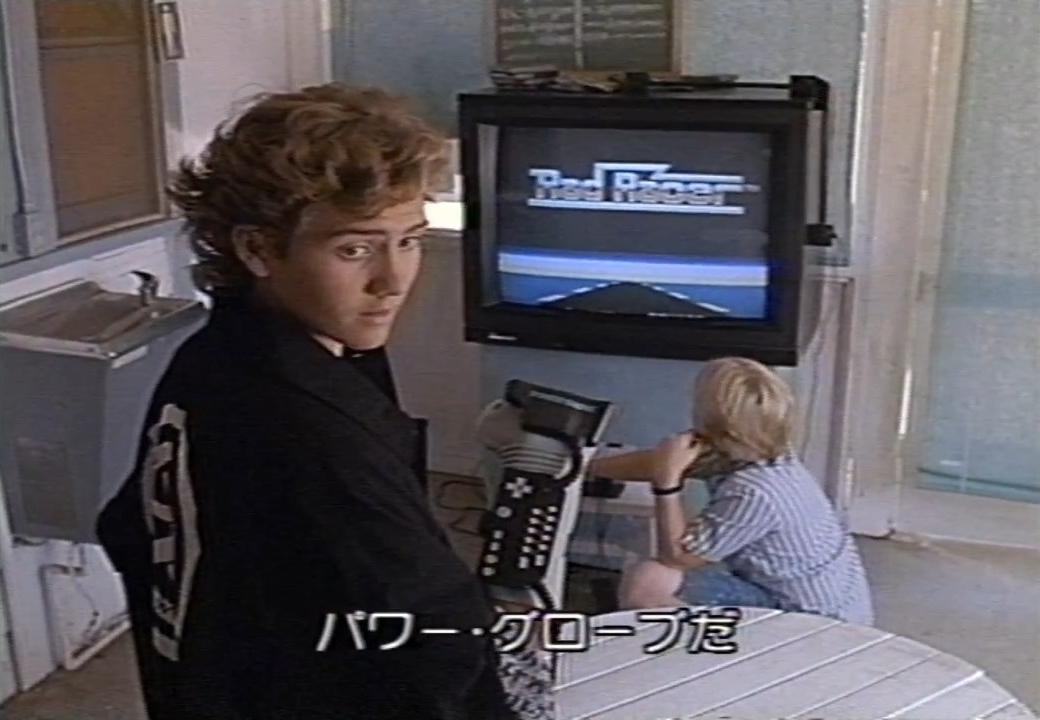
Jimmy’s rival, Lucas, shows off by revealing his secret weapon: the Power Glove. In truth, we all know this was part of the “Nintendo commercial” aspect of the movie, meant to trick kids or parents into buying the Power Glove for themselves.
I was impressed to see that “Power Glove” remained “Power Glove” in the Japanese subtitles. And it makes sense – the Power Glove got released in Japan too, although with much less hoopla.
You know, I should do an article about “what do Japanese gamers think about the Power Glove” sometime. I never considered how it was released there, advertised there, viewed there, and everything else. My hunch says it was barely noticed and quickly turned obsolete due to the Super Famicom’s release around the same time.
Power Glove
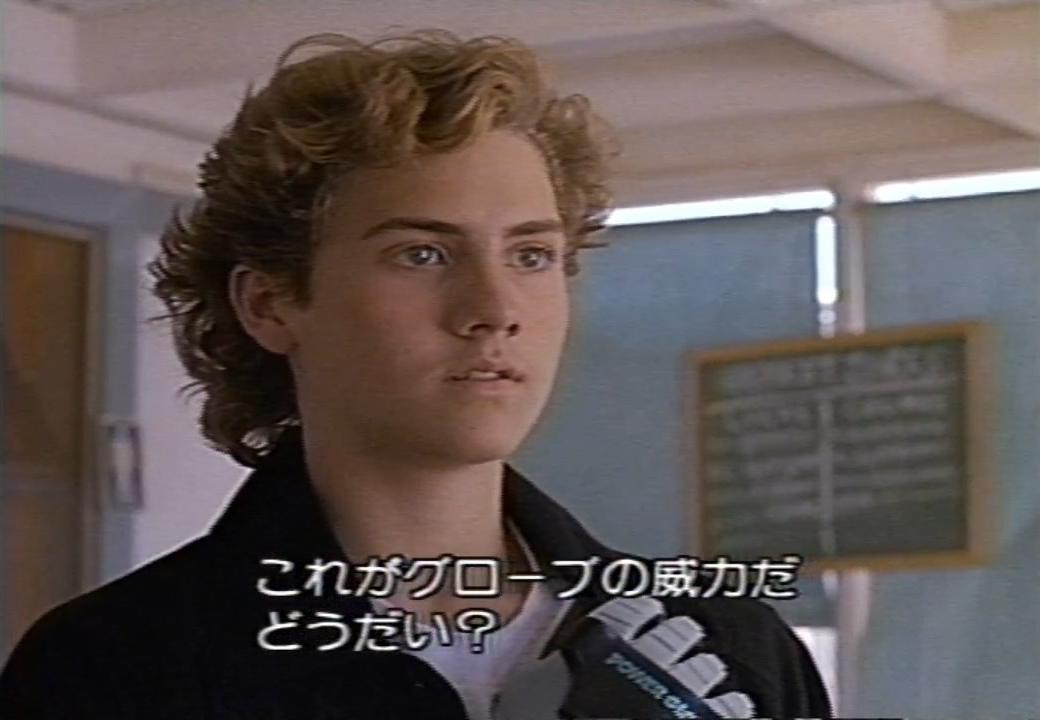
At last, we reach the famous line in the movie. After Lucas shows off his skills using the Power Glove, he turns to the main characters and says:
I love the Power Glove. It’s so bad.
So how was this notorious quote handled in translation? Like this:
This is the might of the Glove. What do you think?
…Oww, that’s weak and unmemorable.
But, as I mentioned earlier, The Wizard has had more than one translation over the years, and I’ve managed to find a screenshot of this line from an alternate subtitle translation:
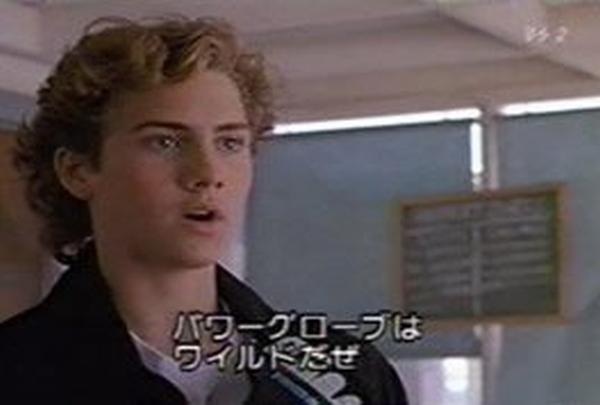
The Power Glove is wild, man.
Now that’s definitely better. It almost makes it sound more appealing than the English line… Almost. Although to be honest, if I were to buy a Power Glove right now, today, it’d be a Japanese one anyway. I’d love to see how its manual looks and how it’s different in little ways from NES Power Gloves.
Turtle Power
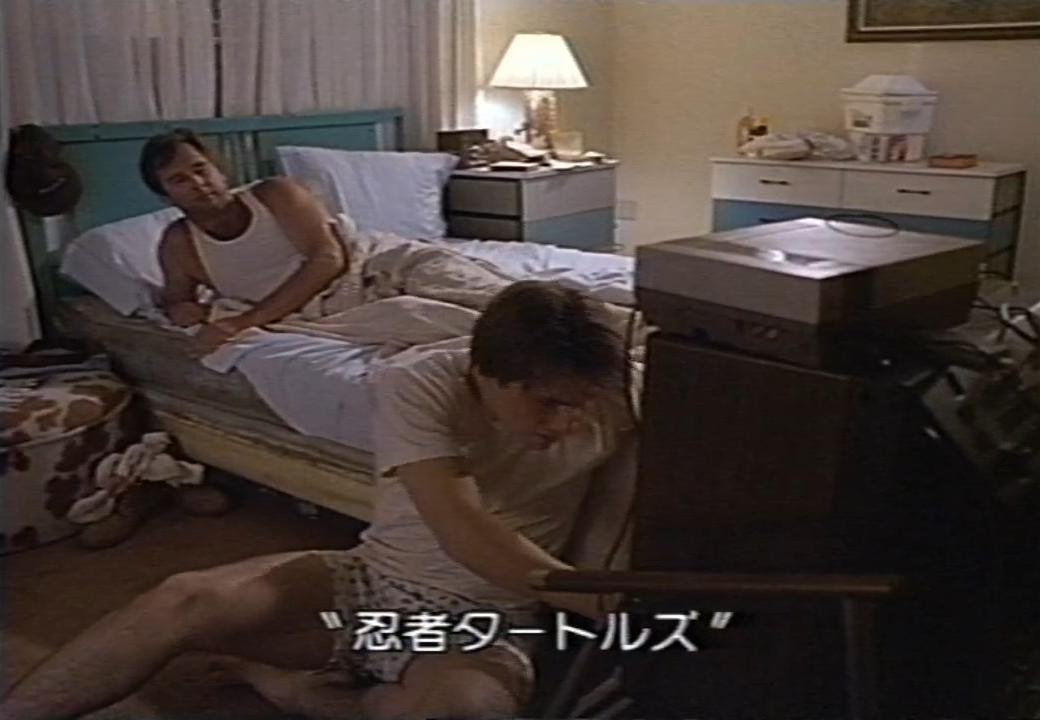
At one point, we see Corey’s big brother playing Corey’s old NES. He replies with “Teenage Mutant Ninja Turtles” when asked what game he’s playing. In Japanese, this was translated as “Ninja Turtles”.
The thing is, the game wasn’t an NES-only release – it got released on the Japanese Famicom too. But it wasn’t called “Ninja Turtles” in Japan. Instead, it was renamed “Gekikame Ninjaden”, which translates as something like “Intense Turtle Ninja Tale”.
This makes me wonder if later translations of The Wizard took the time to match game titles with their Japanese counterparts. My gut feeling says no, but I still have hope!
The Quits
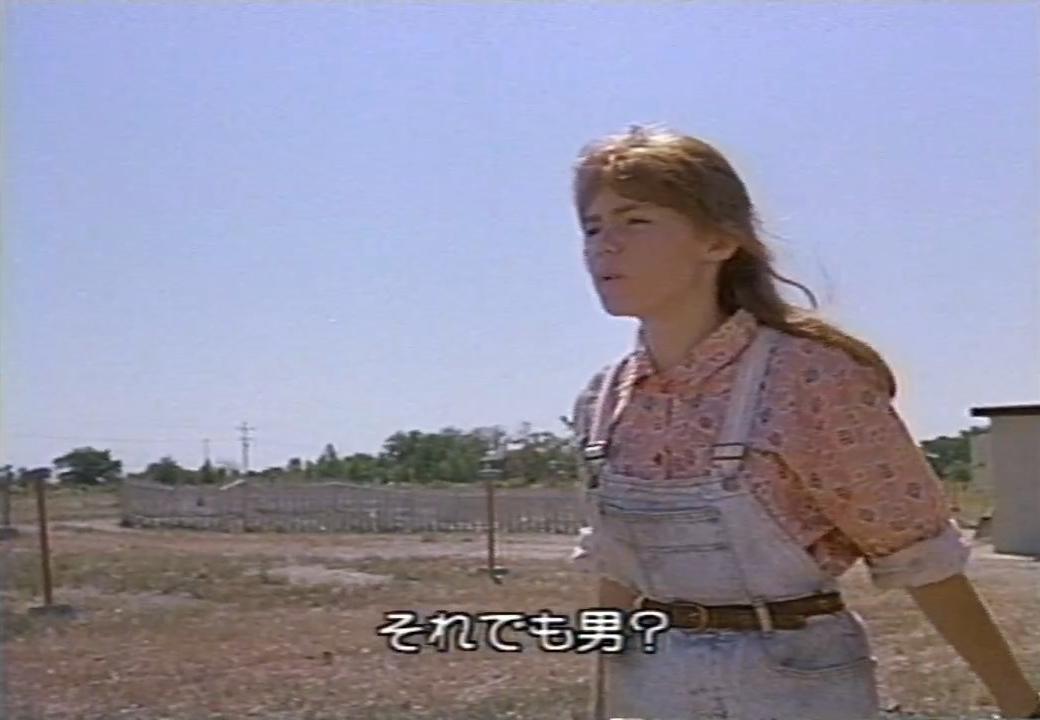
Haley gets angry at Corey for giving up on the game tournament plan. In English she yells, “You’re a quitter, Corey!”. In Japanese, this became “And you call yourself a man?”.
Simon’s Quest
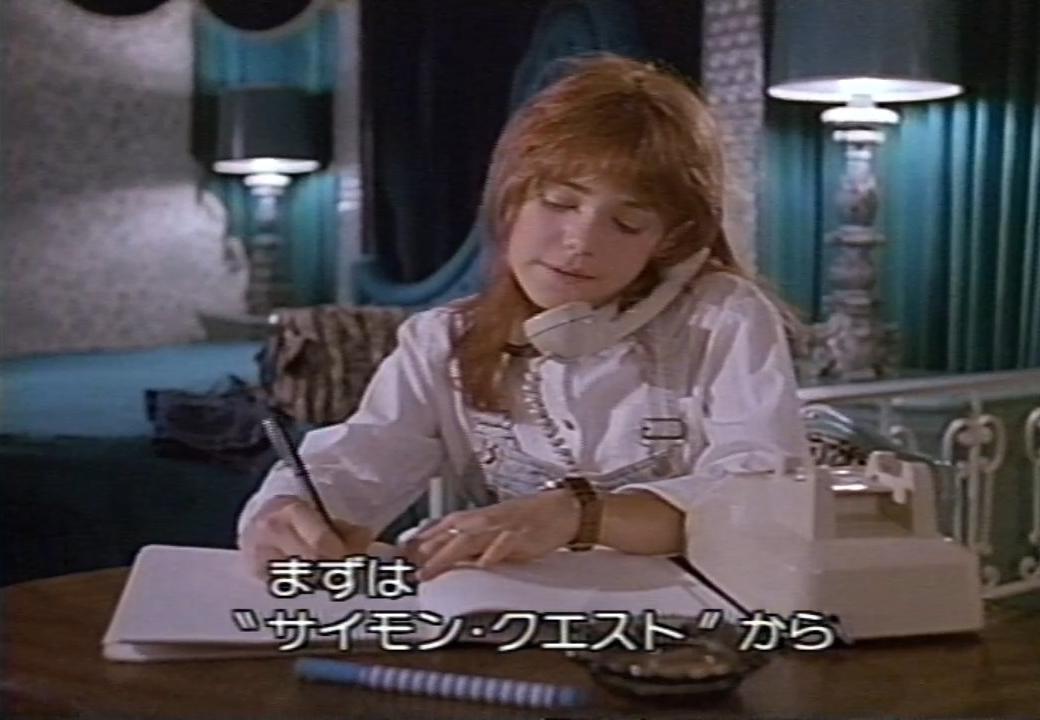
Haley calls up the Nintendo game tips hotline and asks for a bunch of help with a bunch of games so that Jimmy can master every game before the big tournament.
During part of this video game training montage/Nintendo game library advertisement, Haley mentions Simon’s Quest, which is the short name for Castlevania II: Simon’s Quest. In Japanese, this was translated as “Simon Quest”… but this choice would leave Japanese gamers in the dark, because the game was never called anything like that in Japan. Instead, it was known as “Dracula II: Sealing of the Curse”.
Again, it’d be crazy to expect the translator back in the early 1990s would’ve been able to research all this game info. But I also had a lot of fun keeping an eye out for these name oversights while watching the movie for this article. It does make for some good trivia too!
Mystery Name
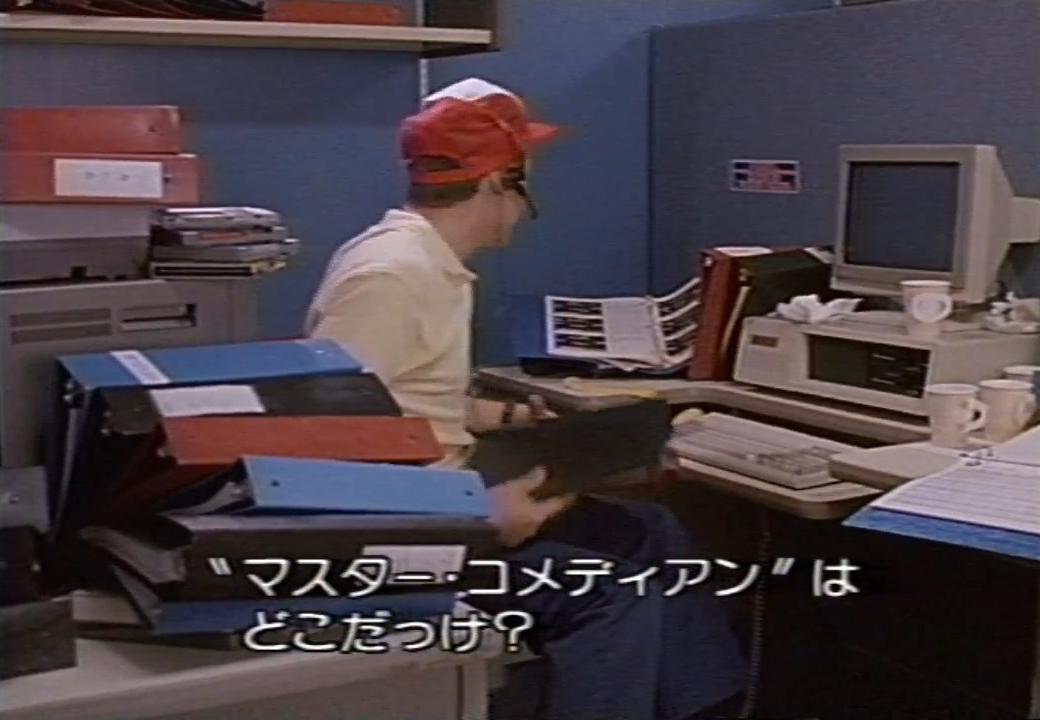
The Nintendo hotline guy answers a bunch of questions about different games during the training montage. There’s one line in particular that’s hard to hear, though, mostly because he’s facing away from the camera and because of the loud music playing on top of his dialogue:
As we’ve already seen, the translator clearly didn’t have access to a script and had to do everything by ear. So the Japanese subtitle has him say “Master Comedian” here… but that doesn’t strike me as an actual game title or the name of an enemy. So what is it supposed to be?
I checked the English DVD subtitle track, and it says “Elastic Maniac” here instead. But when I play back the audio, it seems like a real stretch for that to be correct. On top of that, we’ve already seen that the English subtitler didn’t have access to the movie’s script either, and we’ve also seen at least one instance in which the Japanese subtitler heard a line better than the English subtitler. What a weird mess!
In my opinion, the line definitely sounds closer to “Master Comedian” than “Elastic Maniac”, but I don’t think it’s either. Almost every game mentioned in the movie is an actual NES game, so I feel like it’s gotta be an NES title or an enemy or stage name from an NES game. I’m not sure what it would be though. Hopefully someone can shed light on this mystery someday!
Super What
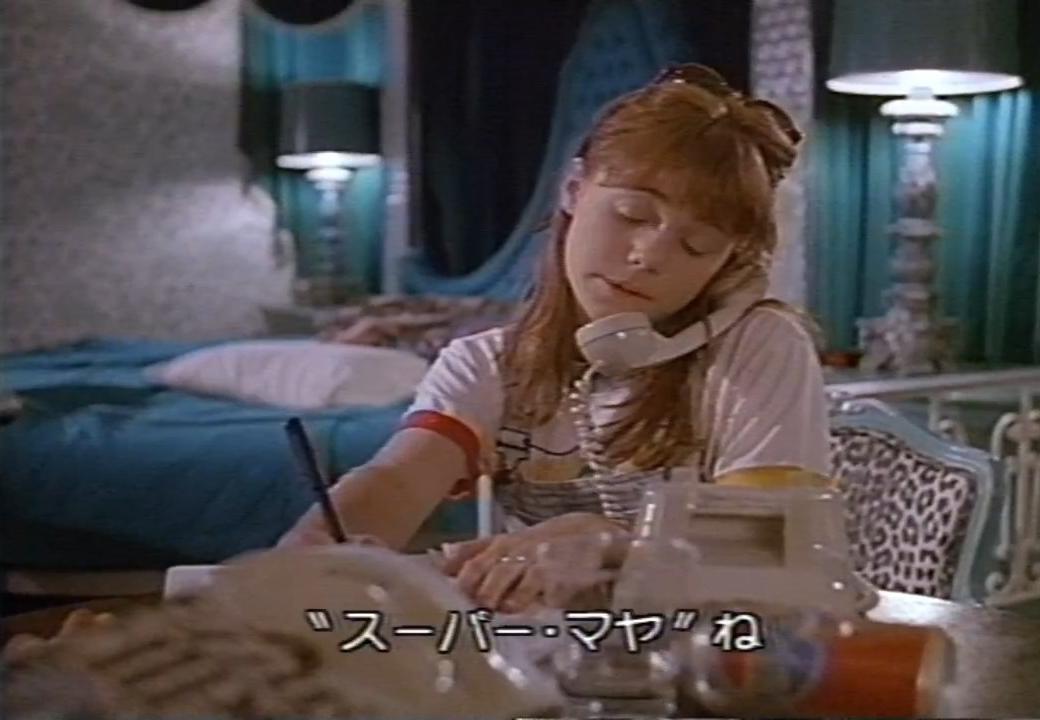
Haley mentions another game during the training montage: Super Mario Bros. 2. She says it kind of quickly, which caused the subtitler to mishear the line. As a result, the game is now known as “Super Maya”.
More Ignored
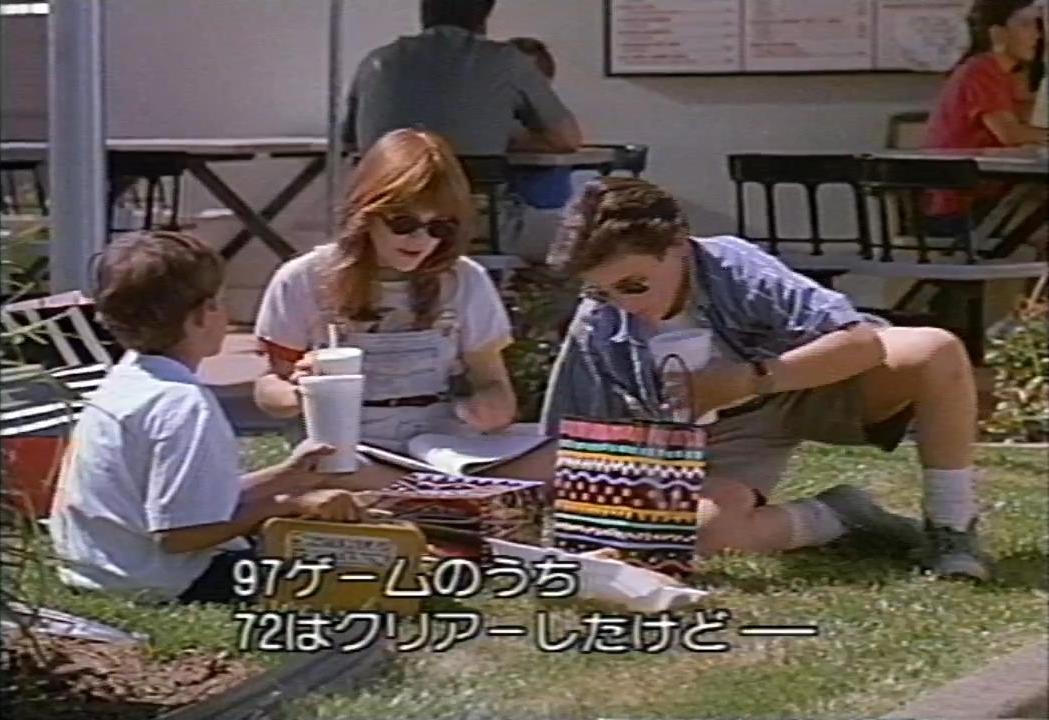
After the training montage ends, Haley mentions that there are some games that Jimmy still needs to study before the tournament. She mentions two games specifically here: Rampage and Dr. Chaos. The Japanese subtitles remove these due to length limits and because they’re not important details.
Still, this got me thinking about how they could’ve been handled in translation had they been left in. Given the NES-centric library we’ve seen throughout the movie, I’m assuming the Rampage mentioned here is the NES version. It seems it was never given a Japanese Famicom release, so I guess it’d make sense to leave it as “Rampage”.
Dr. Chaos, on the other hand, did get a Japanese release as “Dr. Chaos: The Gates of Hell”:
I assume the Japanese version was released first too. I’ve actually never played this game or even really heard of it until now. It almost sounded like a fake name until I looked into it just now!
Link to the River
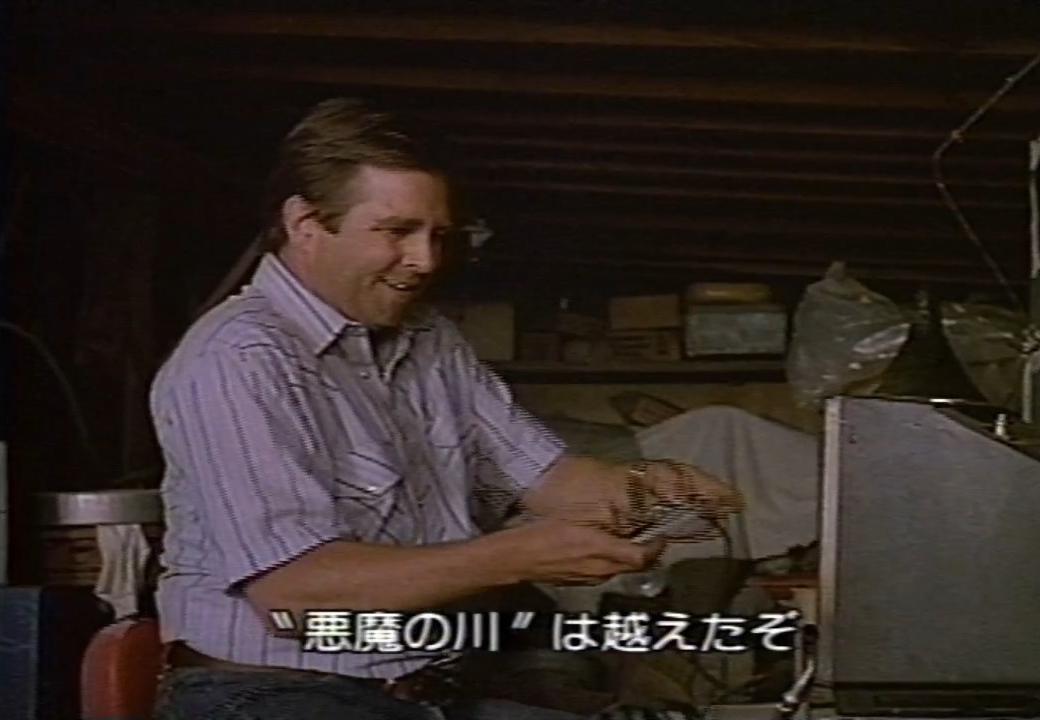
At some point, the dad get addicted to playing games after calling them junk previously in the movie. In one scene, he excitedly says, “I got past the River Devil!” while playing Zelda II.
In Japanese, this was translated backwards as “I got past the Devil River!” instead. I guess it’s not a big difference since it implies you’ve gotten past the river in question either way. Still, given that the translator clearly wasn’t big into games or game lingo, my gut feeling is that the translator mistook the phrase “River Devil” for the actual name of the river, similar to how we sometimes put the word “River” first with things like the “River Thames” and the “River Styx”.
Incidentally, the River Devil in question was changed during the game’s localization process. Originally it was a Japanese-style oni that looked similar to our ogres, but for the NES version it was replaced with a spider-looking thing.
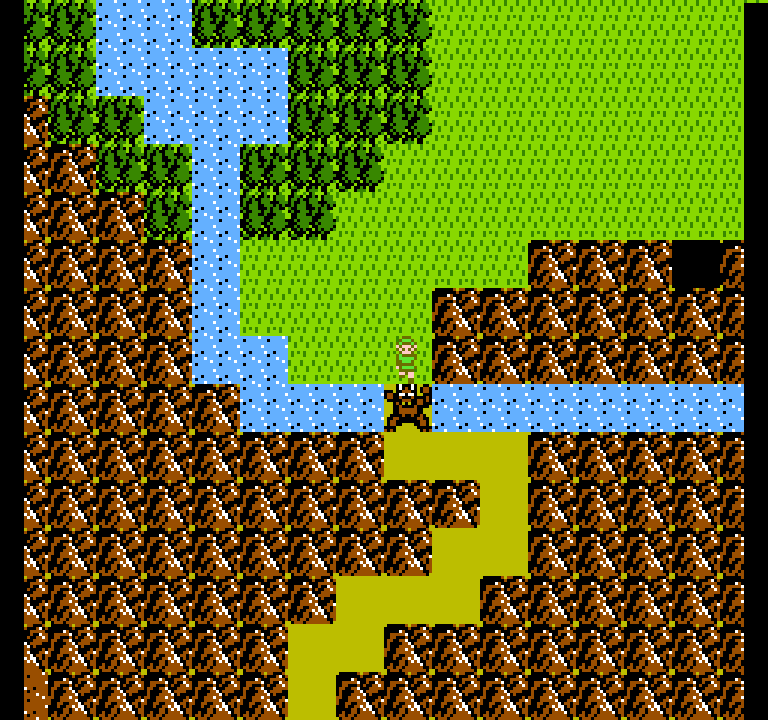 | 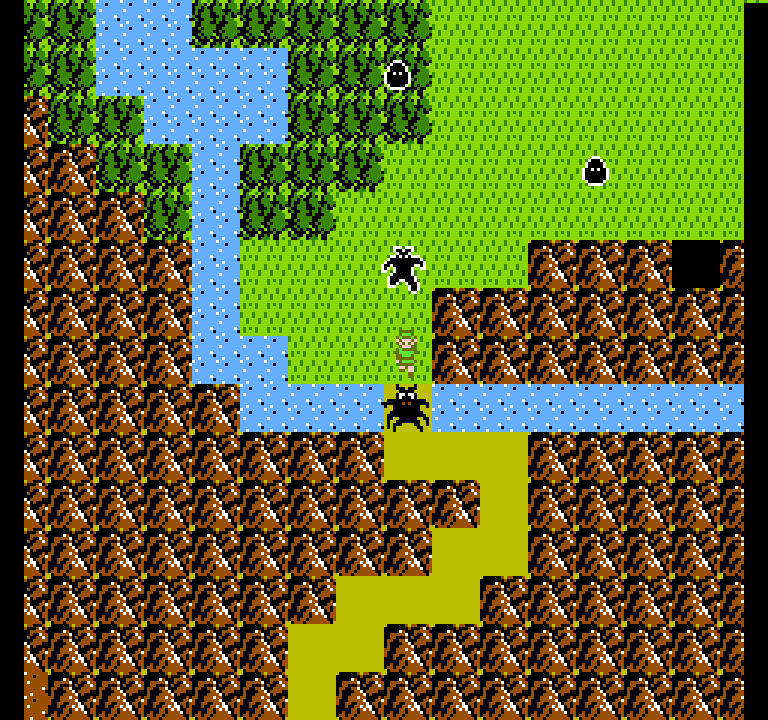 |
| Famicom Disk System version | NES version |
In a weird way, I think “River Devil” better describes the Japanese creature than the English one.
It’s You
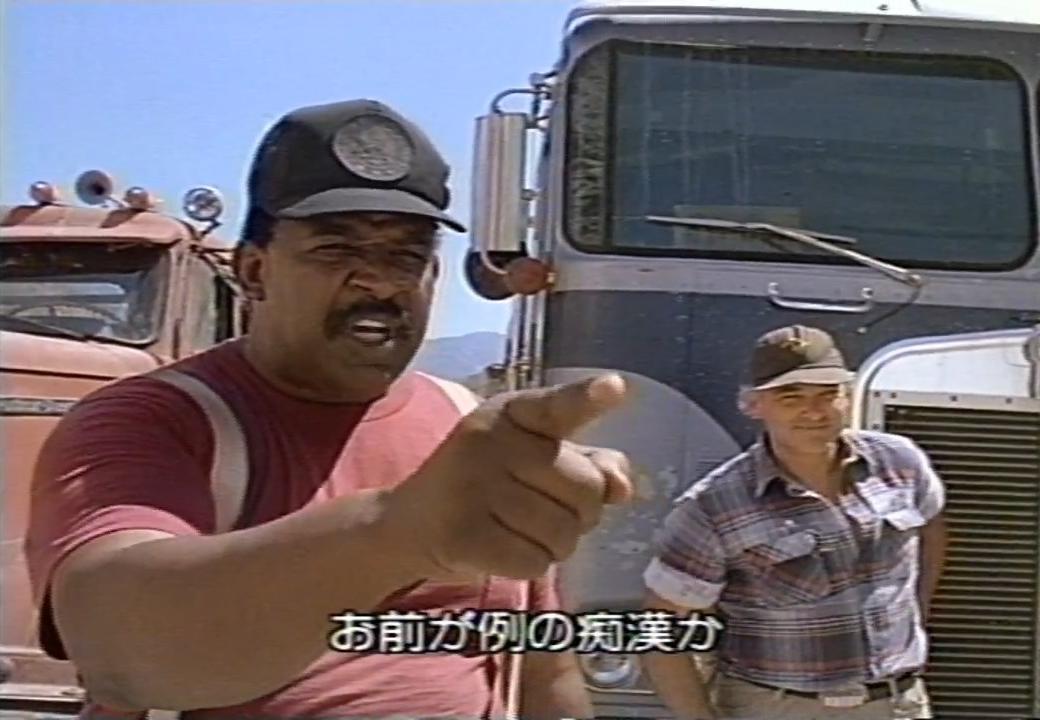
A private detective has been chasing the kids the entire move. Haley tells her trucker friends that the detective touched her breasts, which is a lie, but she needs to slow the detective down.
As the detective is driving along the highway, a bunch of big trucks suddenly surround him. Out step a bunch of big burly truckers, and the first thing this one says, “So, you touched her breasts?”. In Japanese, this became, “Are you the pervert in question?” or “So, you’re the groper?”.
While taking the screenshots from this scene, I really liked how the above one turned out. My secret hope is that someday it might get used on Japanese message boards using character art as a type of reaction image. But I don’t think I’d ever be able to make it trendy enough for that to happen, so the best I can do is make an ugly ASCII art mockup and share it here instead.
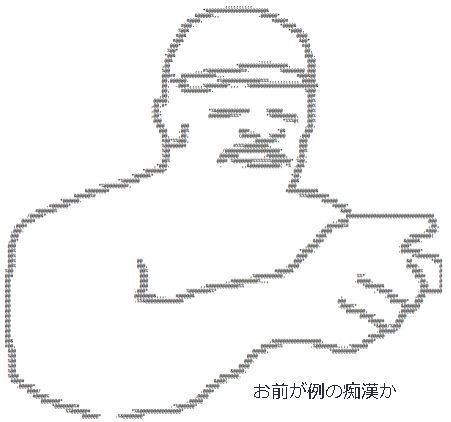
…I’m amazed that turned out as okay as it did.
Ninja GaiDEN
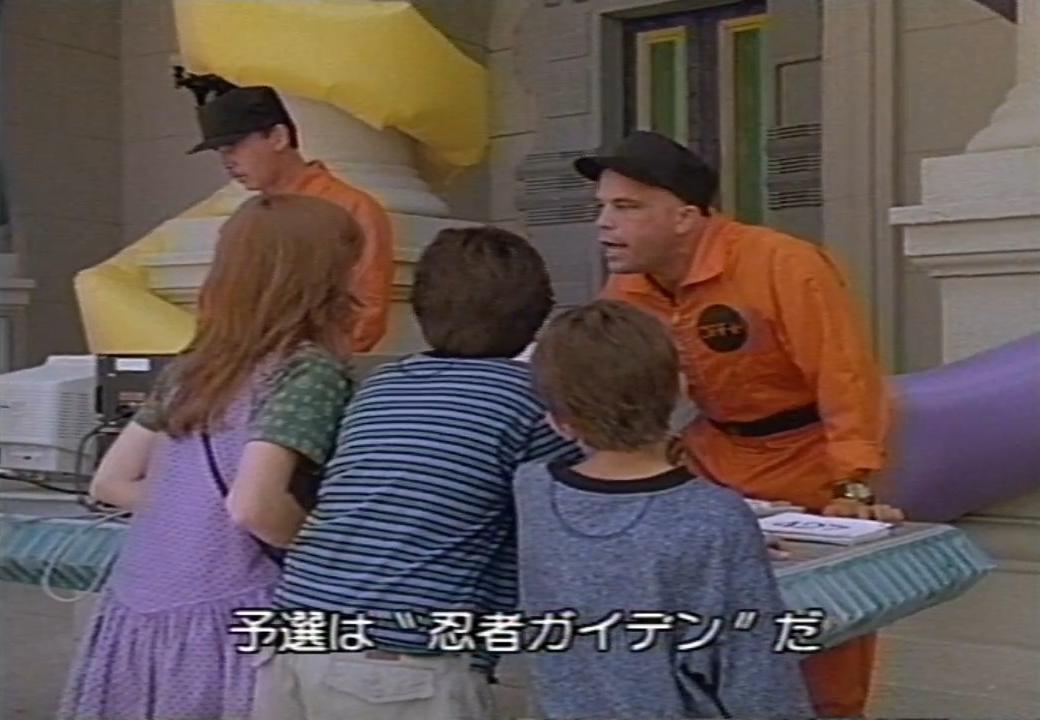
The kids finally reach the big video game tournament. They ask what game is being played for the qualifying rounds, and the guy at the table says “Ninja Gaiden” in a really excited way. In Japanese, this was left as “Ninja Gaiden”… but this game and the entire series at the time was instead known as 忍者龍剣伝 (Ninja Ryūkenden, "Tale of the Ninja Dragon Sword") in Japan.
Wiz Time
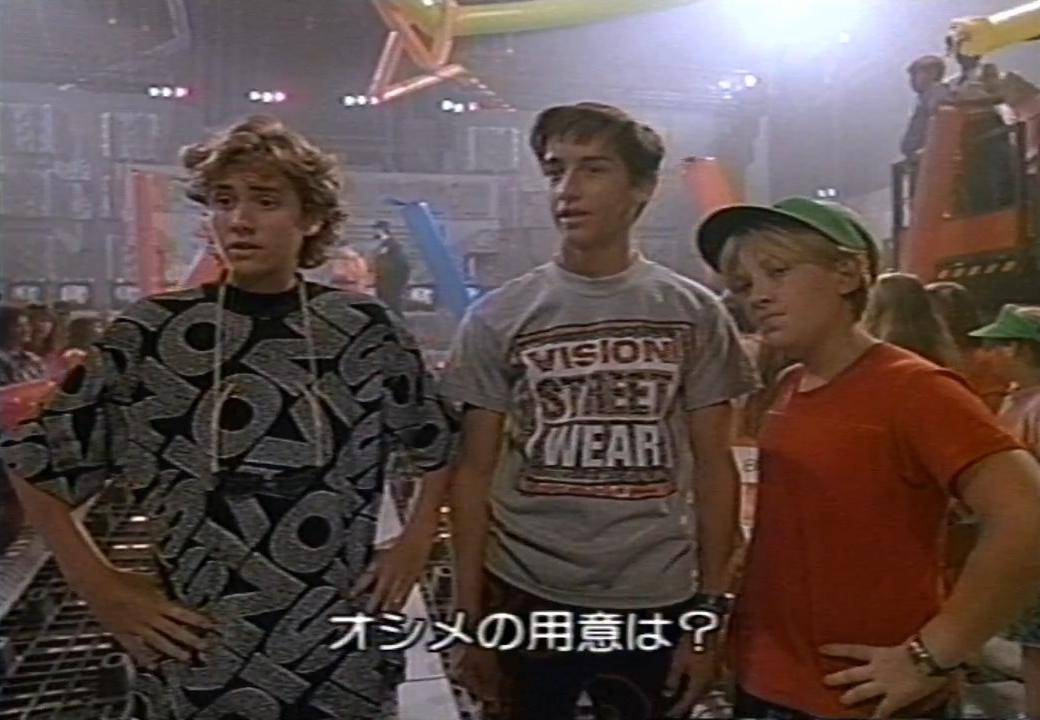
At the tournament, Lucas insults Jimmy by mockingly calling him “the Wizard”. He then adds:
I hope you don’t get nervous like last time. We wouldn’t want you to “whiz” on someone.
The joke here is pretty obvious and simple for us to understand, but jokes are rarely obvious and simple for translators to translate. Similar to other lines we’ve looked at, this line was handled in a straightforward way:
Don’t get nervous and wet yourself. Did you get your diaper ready?
The wordplay on “wizard” and “whiz” was lost in translation, and nothing was really put in its place. Instead, it’s now just a random, urine-related insult.
Weird Advice
Corey offers Jimmy encouragement and advice just before Jimmy participates in his qualifying round. What he says is kind of hard to make out though:
Can you tell what it says? I hear a couple different possibilities, but the main one I keep going back to is “remember where to warp on the bort”. This doesn’t make much sense, especially given that the game in question is Ninja Gaiden and there are no warps.
Based on what happens later in the movie though, I wonder if it’s supposed to be “remember where to warp on the fort” and was a line originally meant for Super Mario Bros. 3 but got moved to an earlier spot in the movie during the editing process.
Whatever the case, it’s a mumbled mess that doesn’t make much sense and is probably something that no viewer caught anyway. Even the English DVD subtitler had trouble with the line:
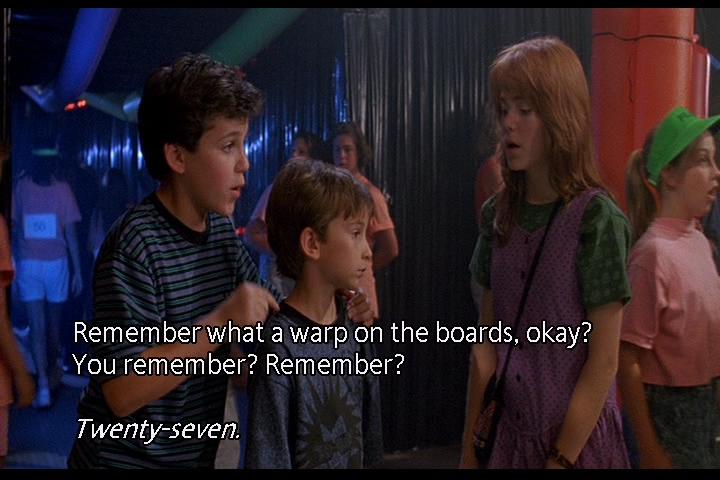
Remember what a warp on the boards, okay?
What? That doesn’t even make grammatical sense, unless it’s a mnemonic phrase or something.
I have no doubt that the Japanese translator struggled with this line and probably listened to it over and over 50 times. The end result:
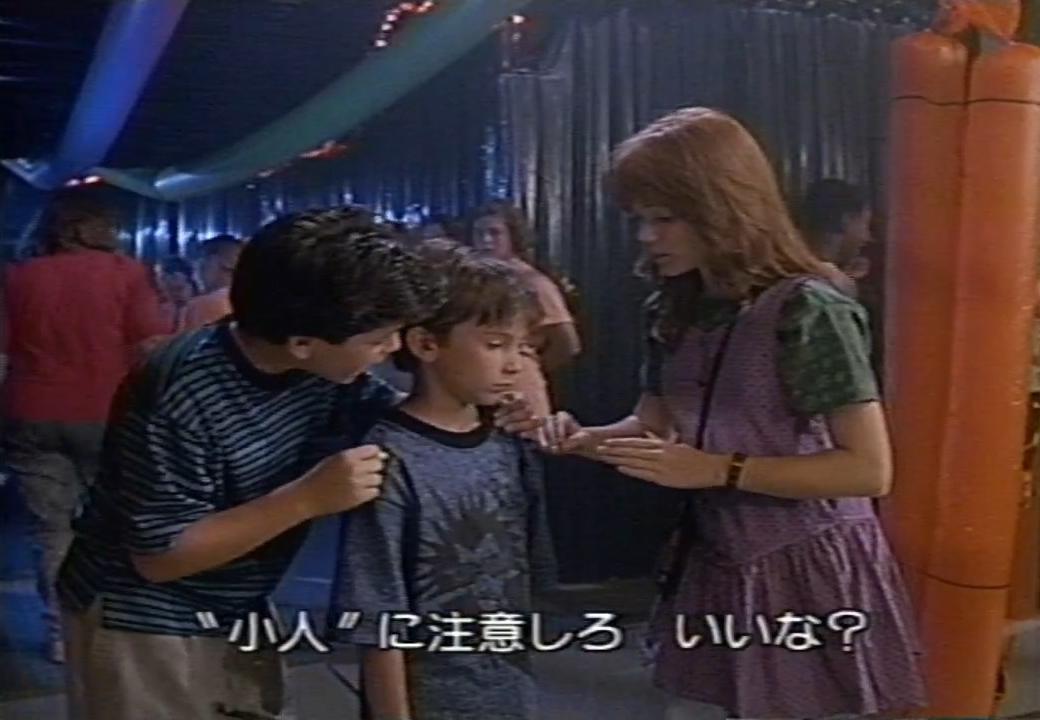
Watch out for the “dwarf”. Okay?
I don’t really hear that “dwarf” when I listen to the clip, but it’s an amusing translation and unintentionally fits Ninja Gaiden better than the line English DVD version.
Anyway, this is one of those lines that it seems nobody can figure out. Someone call up Fred Savage and ask him what he said 30 years ago!
Big Debut
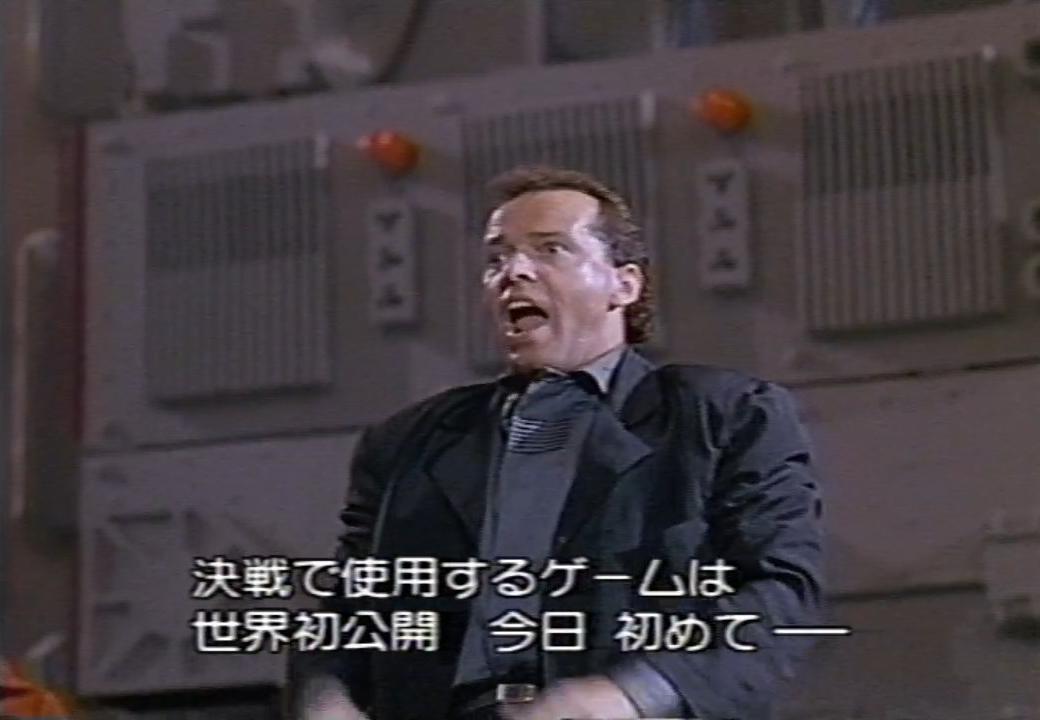
The way overly intense tournament host announces that the final showdown will feature a brand new game: Super Mario Bros. 3. In English, he says:
They are gonna have to play a game that they have never, ever, ever played before.
In the Japanese subtitles, this changed slightly to something that’s roughly like:
The game they’ll play will be getting its worldwide reveal today and will be the first time it’s playable.
The translation doesn’t seem too different at first and is fine as-is for the sake of the movie. But on a technical, factual level, the translation is incorrect: Super Mario Bros. 3 had already been released in Japan well before the date this movie likely took place.
Then again, the original script is also technically wrong too, as there were plenty of people who imported Famicom games from Japan during the NES era and played them using Famicom-to-NES adapters. I can imagine a guy like Lucas doing something like that. At the very least, it would’ve been possible for any of the contestants at the tournament to have had those import connections.
Of course, Nintendo was always trying to crack down on that sort of thing, so it makes sense that that wouldn’t even factor into the equation. Plus this is a movie in which simply watching the intro to Double Dragon makes you a video game wizard, after all.
Looking Back
Again, looking at The Wizard in a new light and from a different audience’s perspective has given me a new opinion of the movie. It’s undeniably a vehicle for advertising Nintendo products, Universal Studios, and other such things. But when I put myself in the shoes of a random Japanese guy randomly tuning into the movie on late-night Japanese TV, the movie takes on a new tone. It becomes a nice little road adventure movie that starts with complicated family issues and has kids who go on an adventure full of ups and downs, but by the end they’ve all grown up and the broken families come together again.
Similarly, if you were to take out out the video game stuff and replace it with something else like yo-yos, sports, karate, or singing or whatever, the movie would still be the same thing. All the stuff outside the video games – which I’ve learned is the main part of the movie – is solidly built and would still work just as well. All the characters would fight, argue, worry, learn about each other, grow, and reconcile. It was the journey that brought everyone together in the end. The specific “wizard” skill involved didn’t really matter.
Anyway, all of this is to say that looking at The Wizard from a different angle has really changed how I see it in general now. I think viewing other movies from this same international standpoint will help me see them in entirely new ways too, so I look forward to doing more!


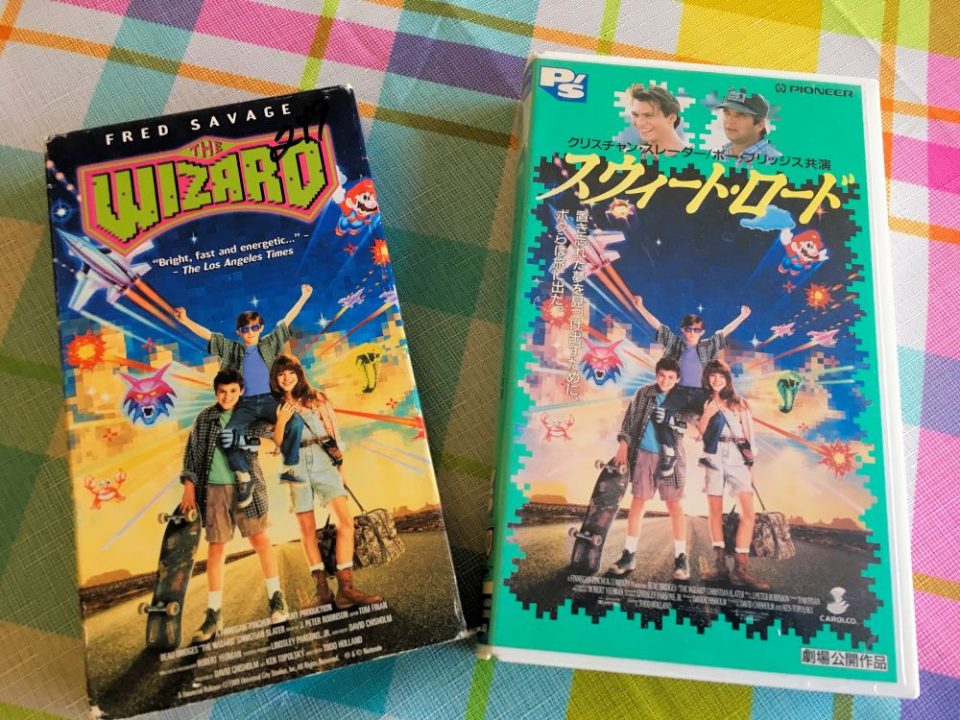
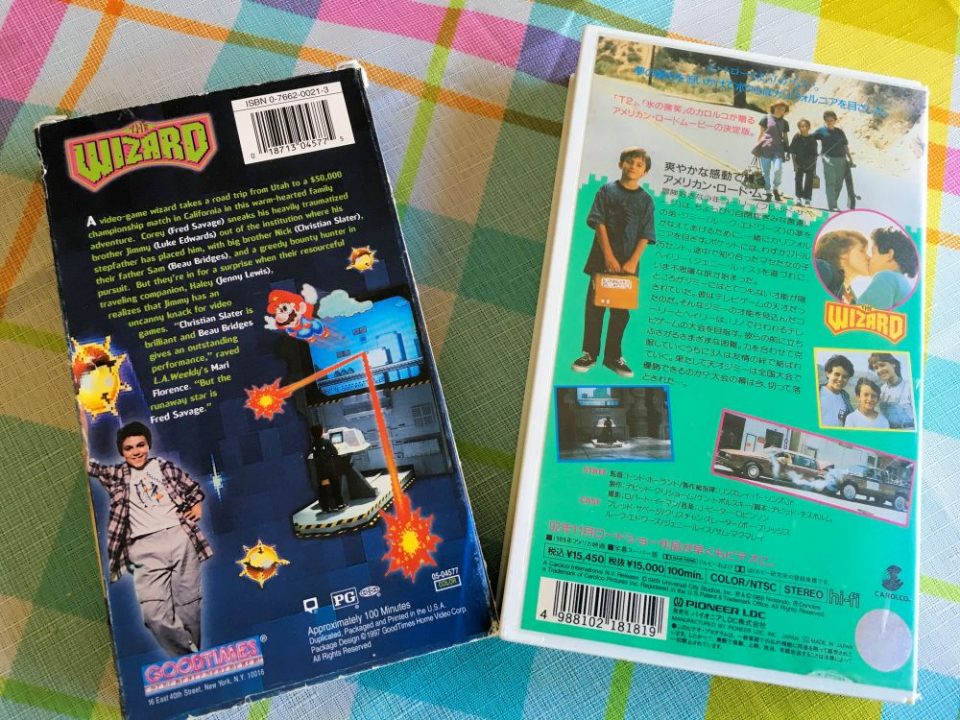
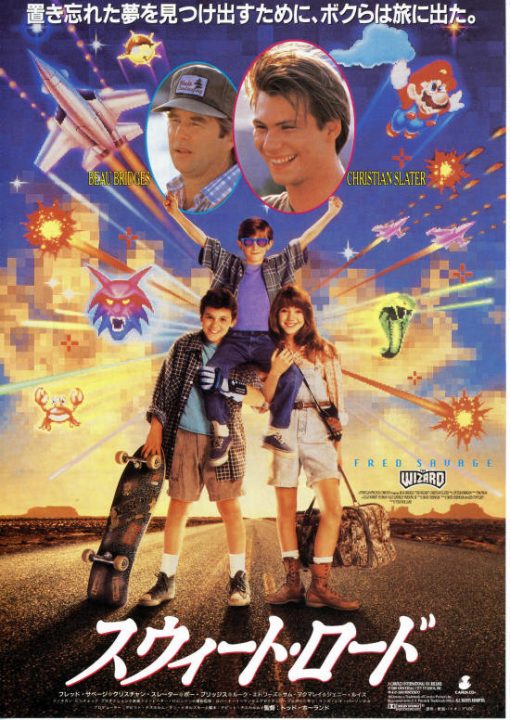
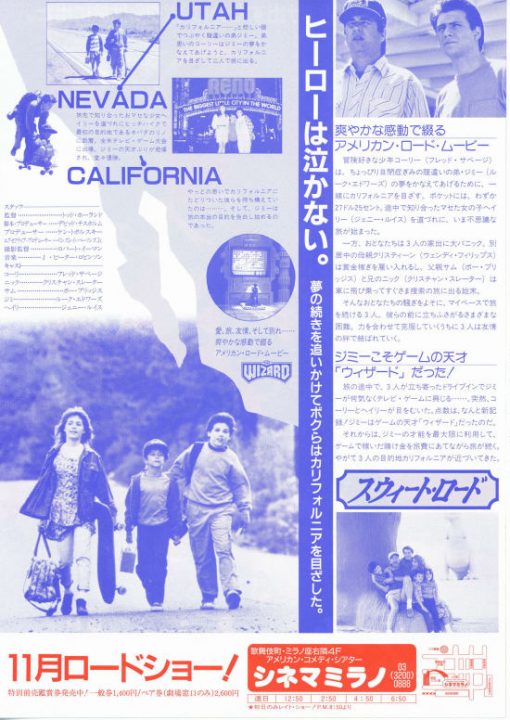
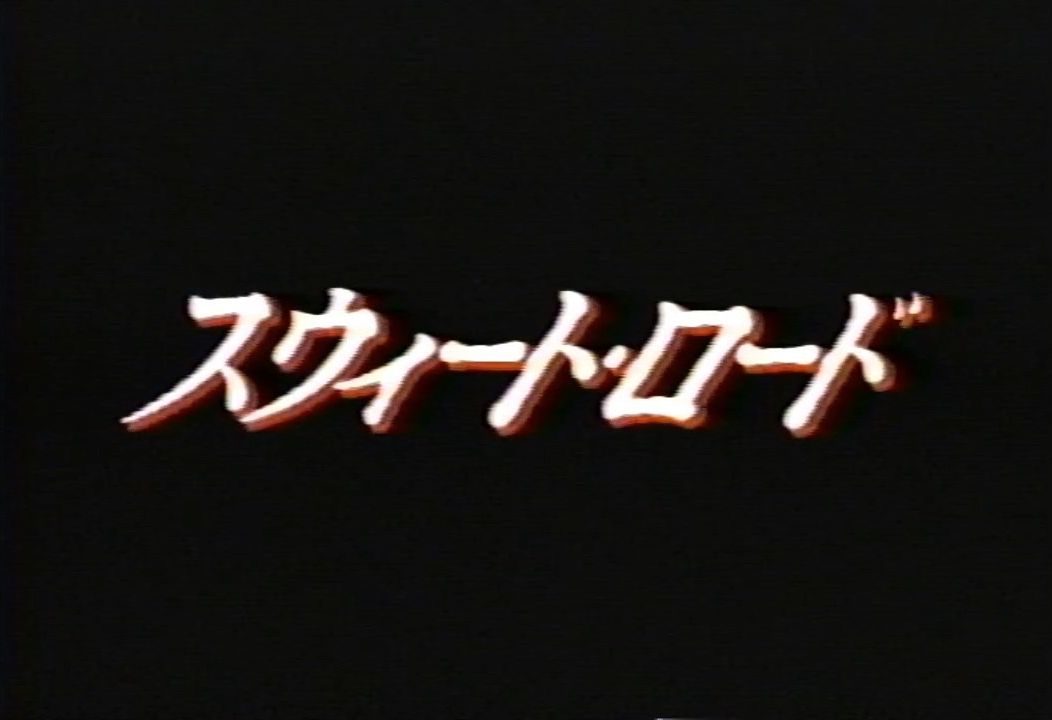
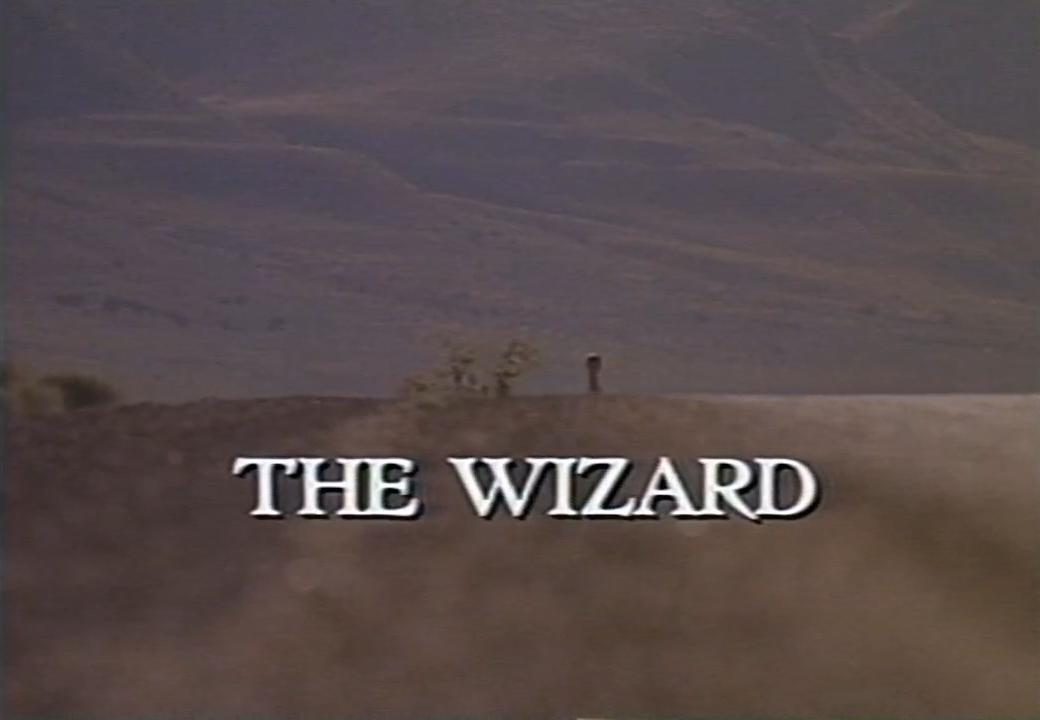
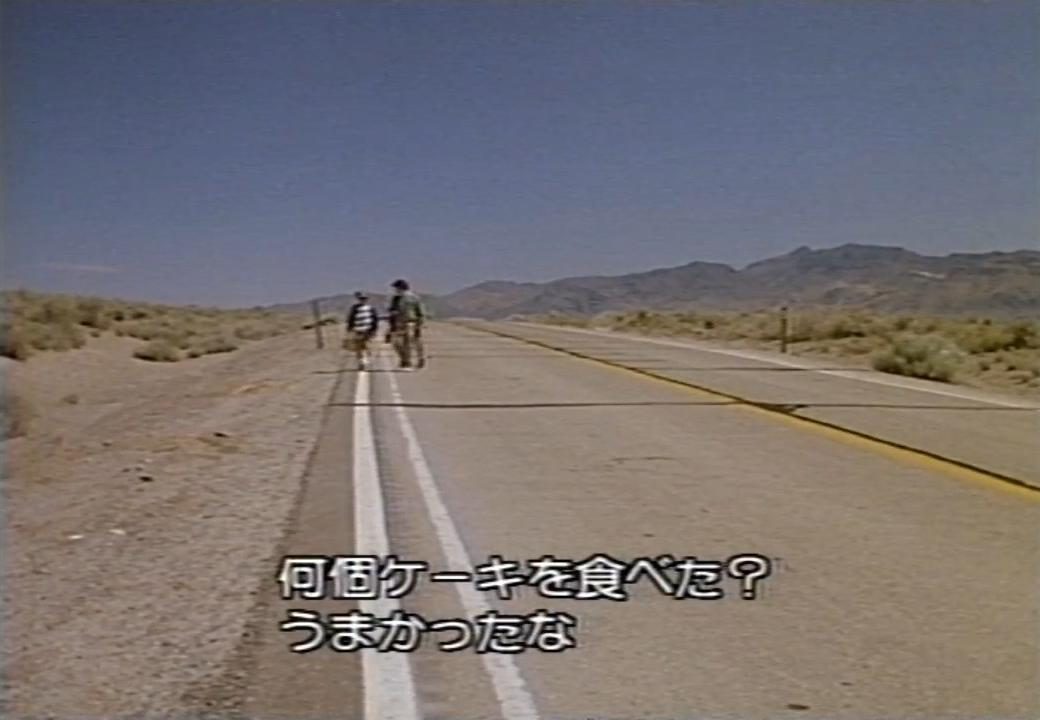
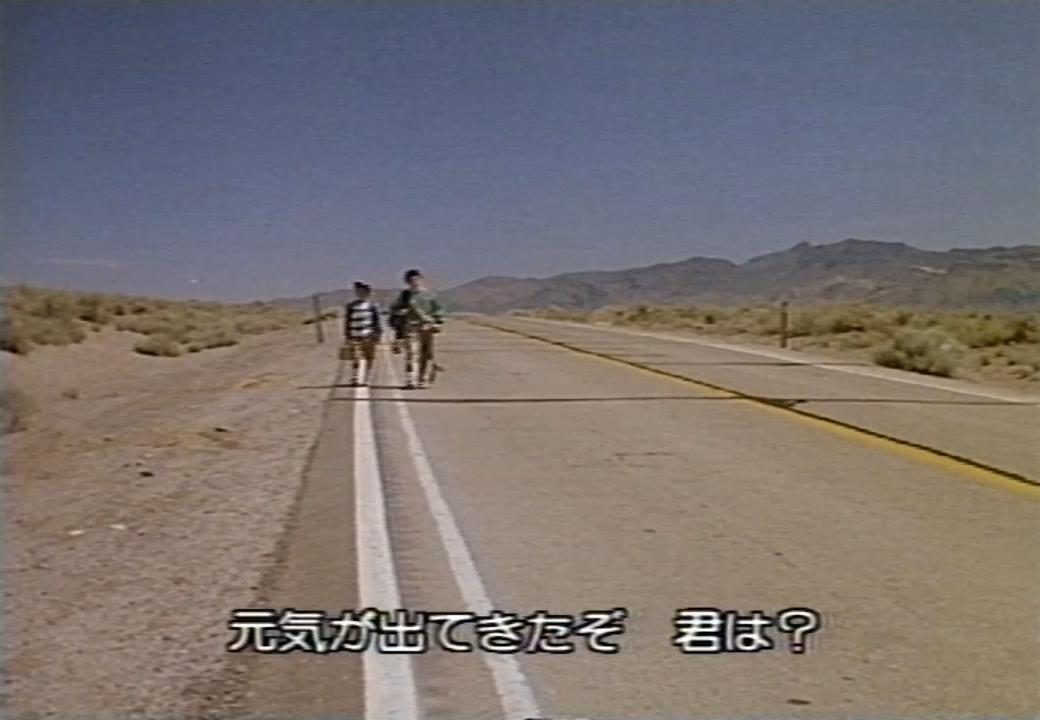

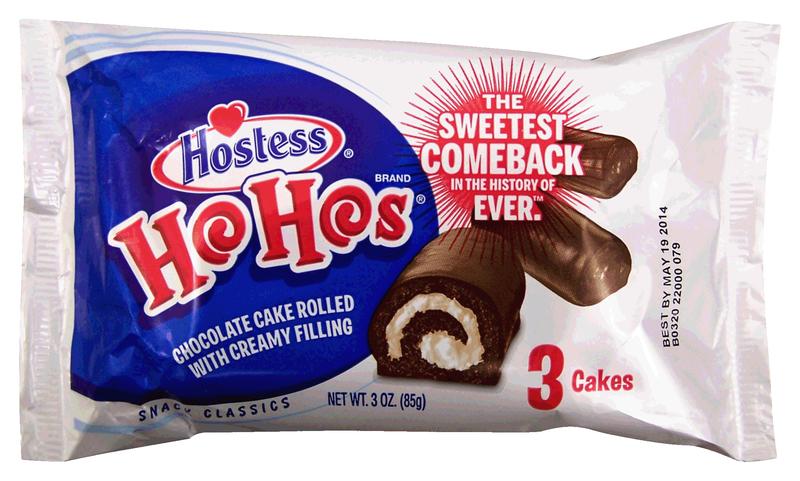
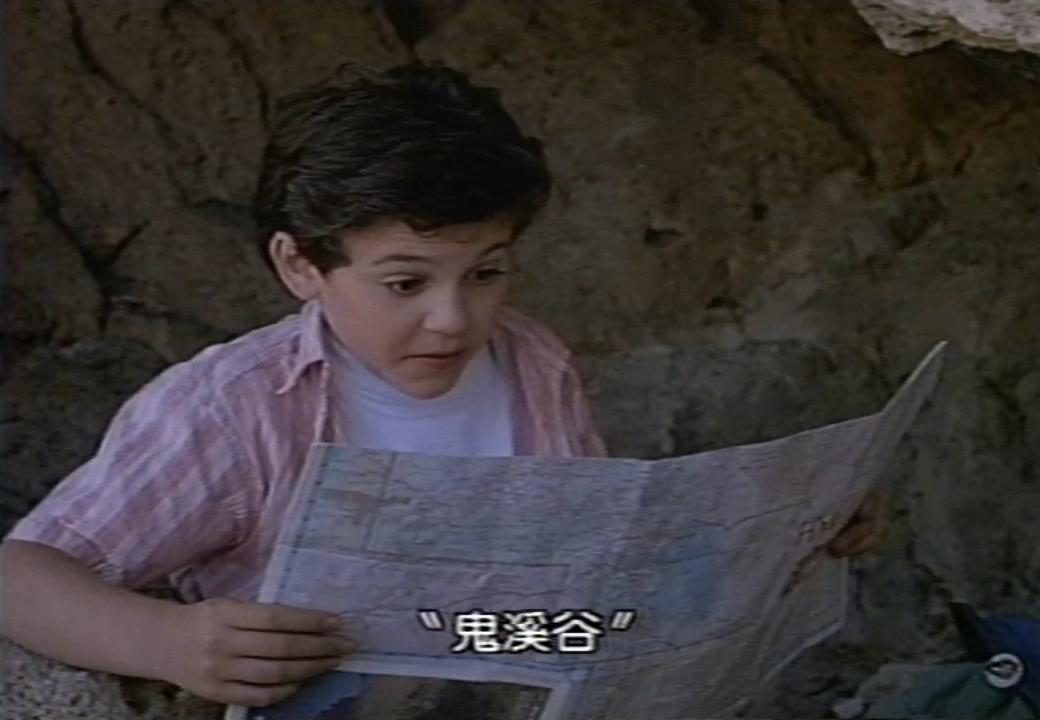
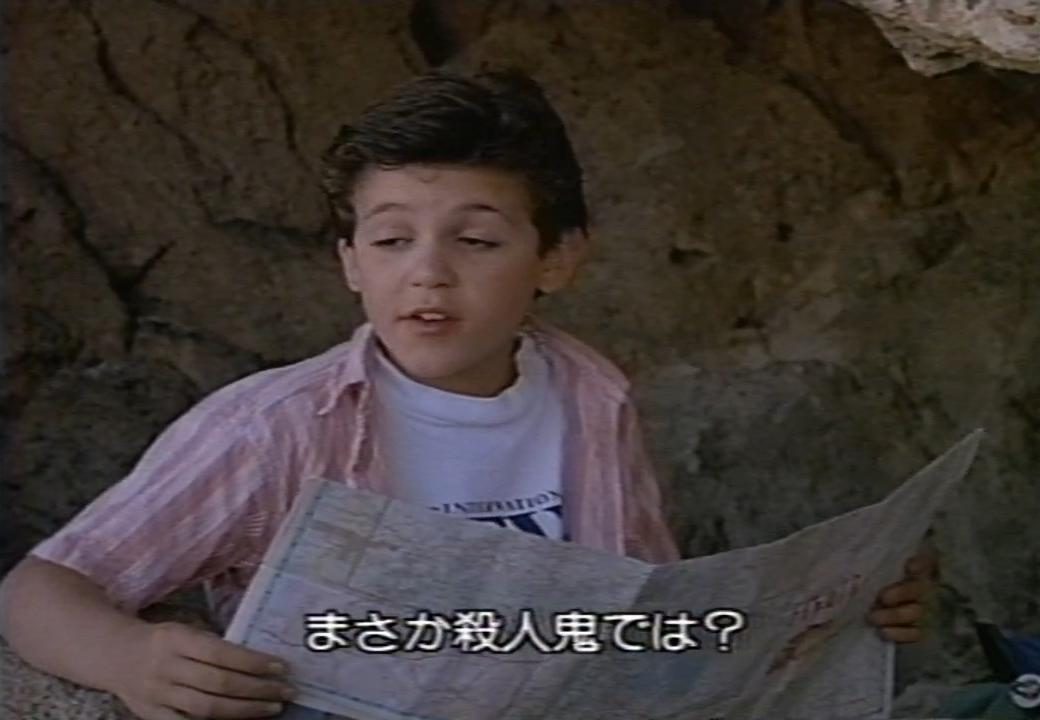
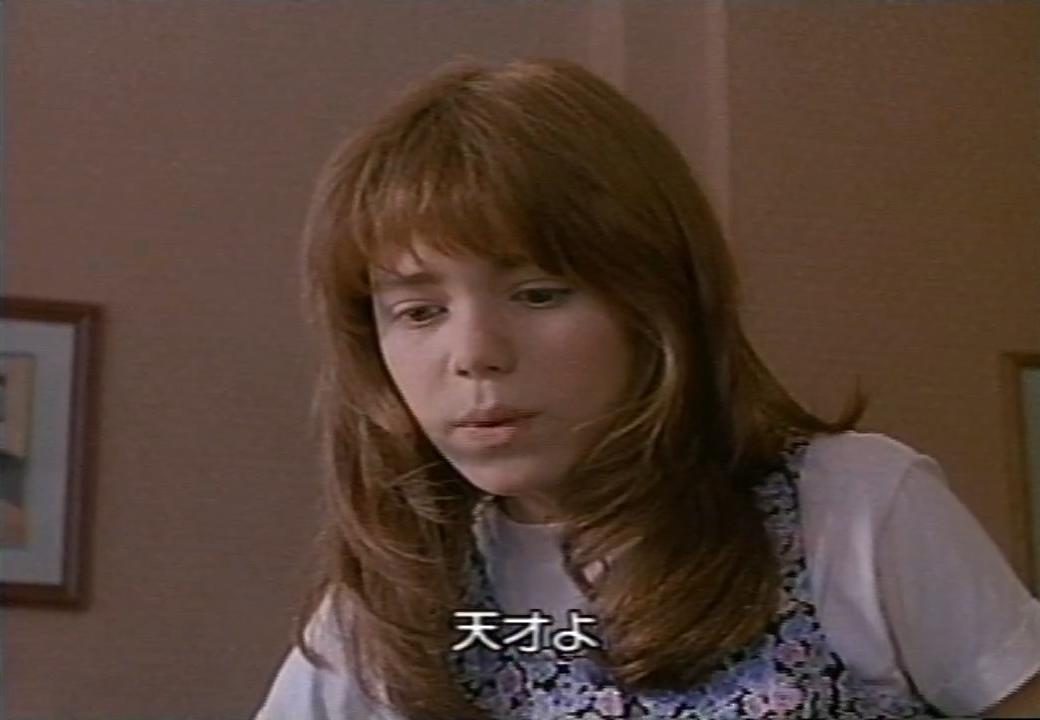
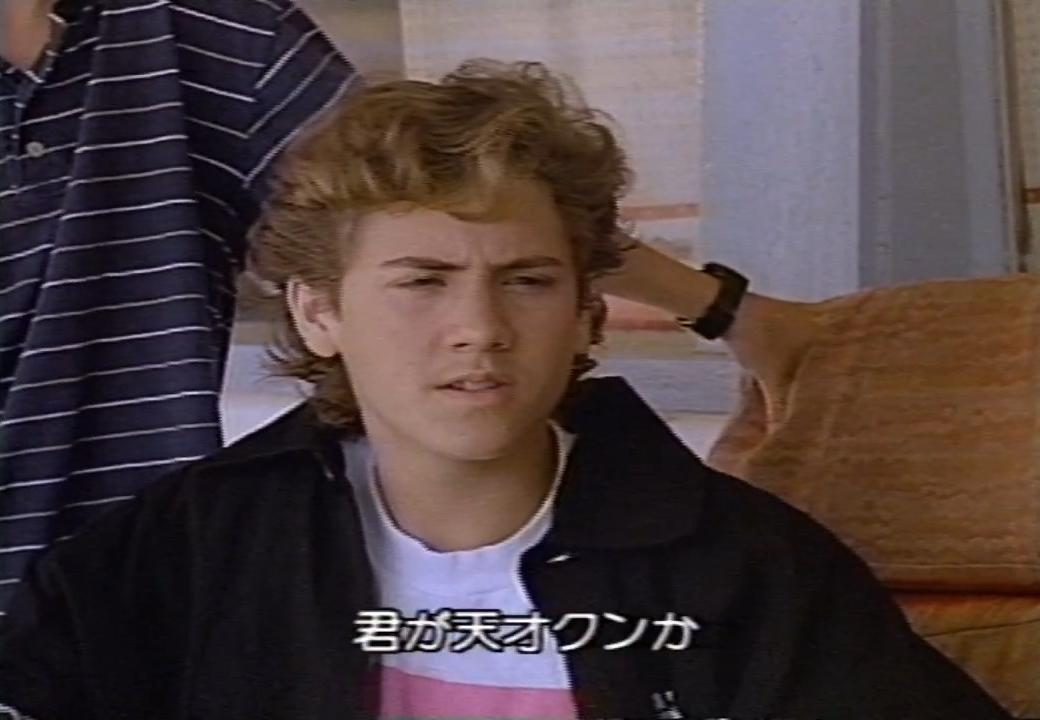

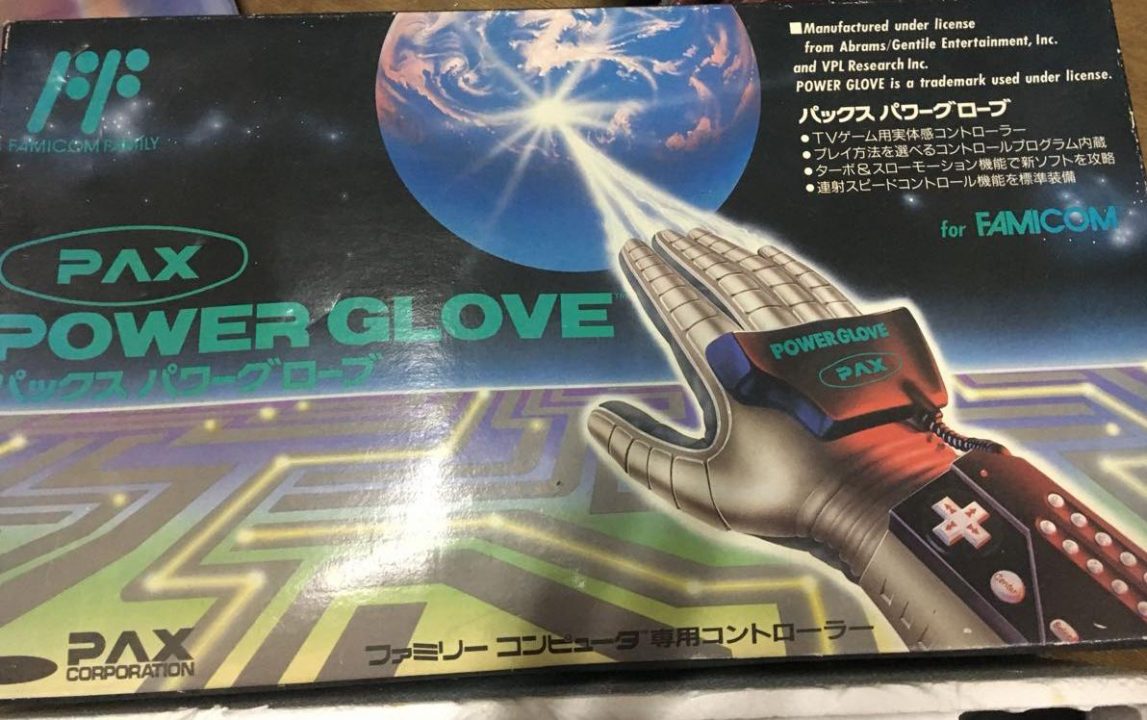
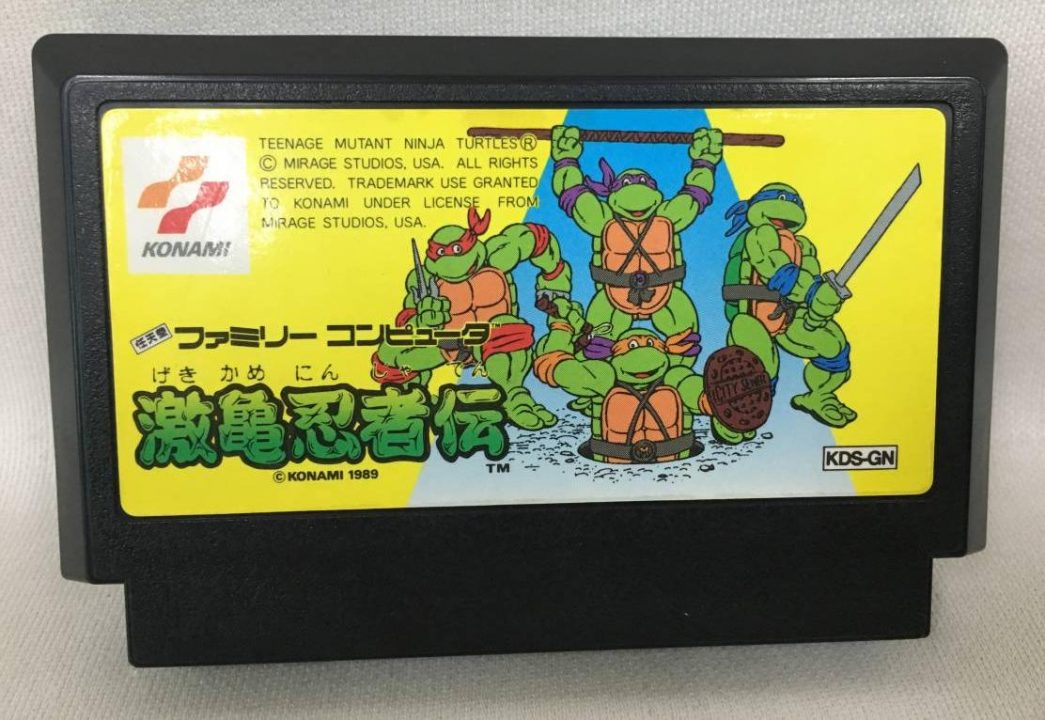
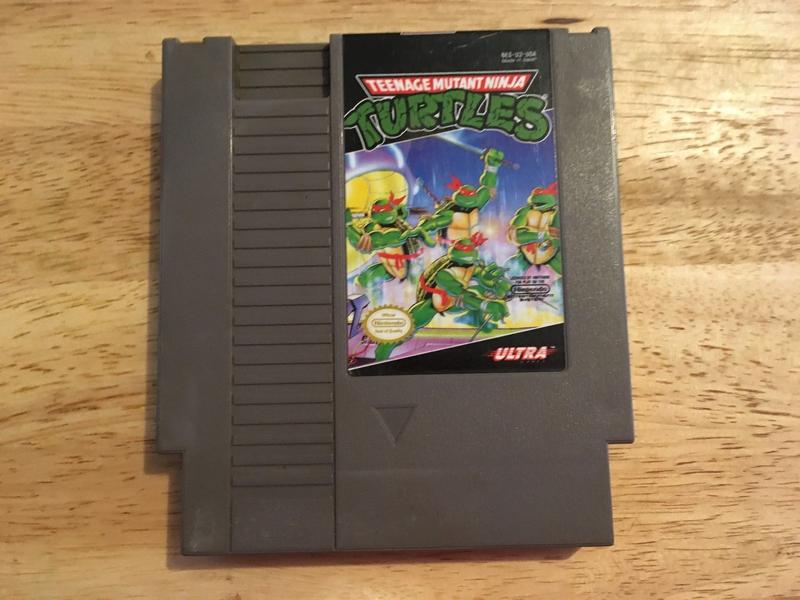
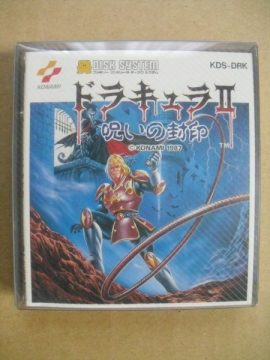
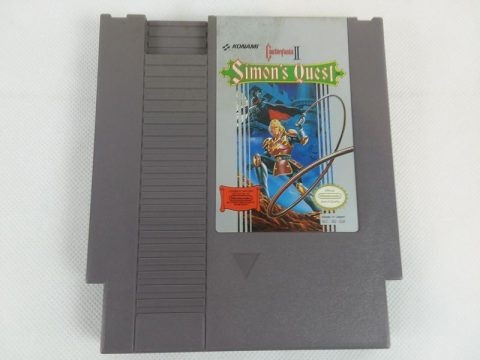
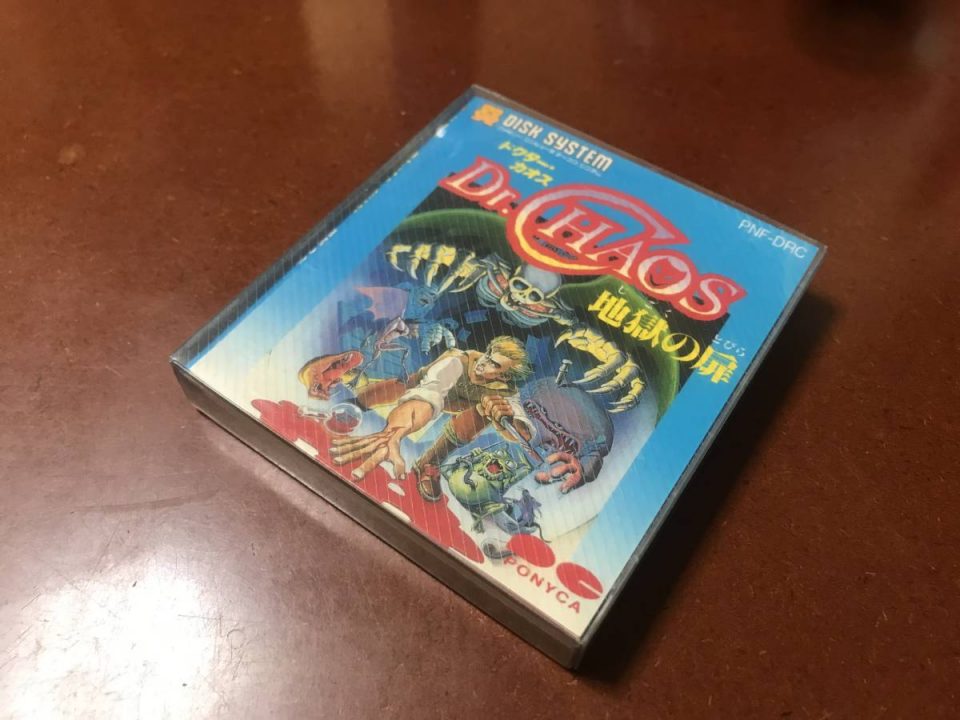
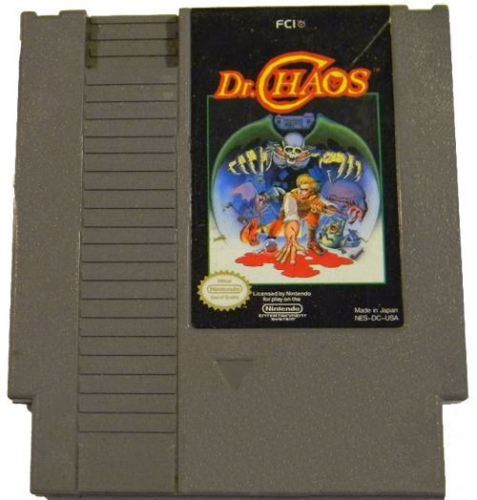
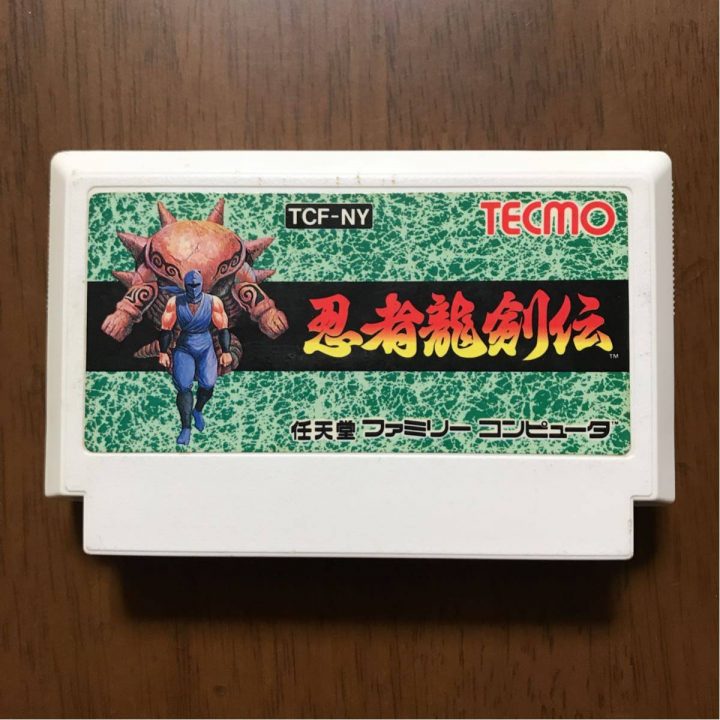
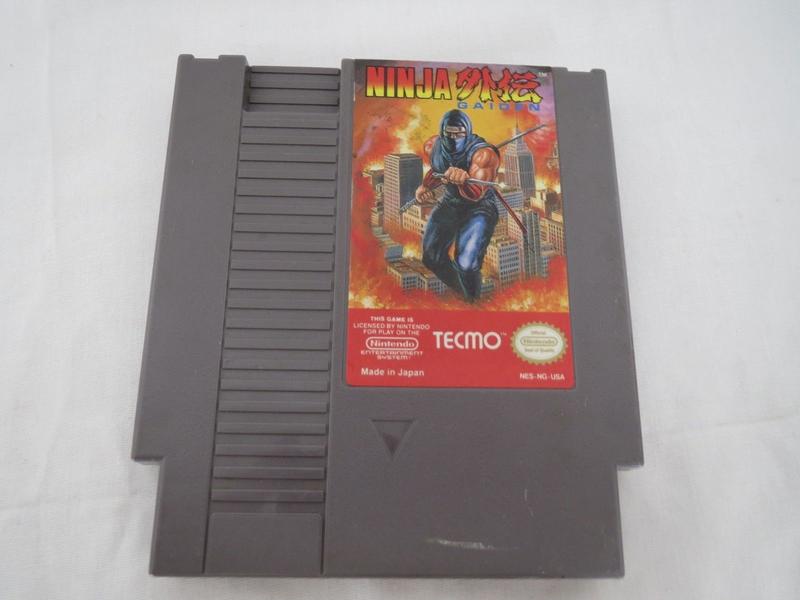
![press start to translate [Final Fantasy IV] press start to translate [Final Fantasy IV]](https://legendsoflocalization.com/wp-content/uploads/2018/05/pressstart.jpg)
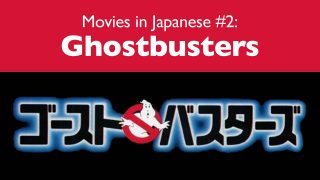

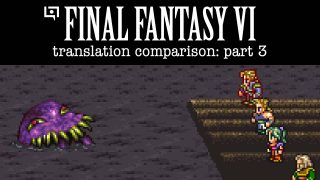
Ahhhh, he touched my breast!
I love the Power Glove. It’s so bad.
Compared to anime, how popular are American movies in Japan? Have they become more or less popular over time?
Also, I can’t see anyone in the world getting excited over Beau Bridges. He is the embodiment of filler actor. Fred Savage was at or near peak draw at the time, so it’s puzzling he wasn’t pushed.
I don’t really follow movies in any country + I don’t have actual box office records or anything to look at, but in my experience American movies have always seemed really prominent in Japan. I even see Japanese commercials for crappy Syfy Channel movies.
And yeah, I’m usually pretty ambivalent when it comes to Beau Bridges too. Although I still feel he wasn’t a good fit for Stargate SG-1.
OH! That’s where I know his face from… He was not a good replacement for General Hammond 🙁
I meant to say something like “Compared to anime’s relative popularity in the US, […]” but I think you answered my question anyway. It sounds like American movies are actually more popular or mainstream in Japan than anime is in the US.
That’s… how it is literally everywhere. The American film industry is huge popular worldwide. This isn’t a Japanese thing, American movies are more popular in (insert literally any country here) than that country’s film industry is in (insert literally any other country here).
Is this just something Americans are unaware of or something?
Well, I don’t live literally every country so I don’t really know. I’d expect places with mature entertainment industries of their own to prioritize their own movies. Are you really sure about this? I’m told India prioritizes its own industry, for example.
That’s not what I said. A country’s own movie industry IS popular. Japanese movies are big in Japan, Indian movies are big in India, German movies are big in Germany, etc etc. But the American movie industry is unique in that it’s also popular in every other country in the world, NOT just in America.
So yes, American movies are more popular in Japan than Japanese movies are in America. American movies are also more popular in India than Indian movies are in America. American movies are also more popular in Germany than German movies are in America. And so on.
I dunno, even though I believe what you’re saying is probably true myself, I think it’s presumptuous to claim it as fact without data.
Also, not everyone is as knowledgeable or world-wise as you are, so if someone asks a simple question so they can learn more, it’s okay to let it go with a simple, straight answer.
I wasn’t really trying to come of as a smart-ass, I was just genuinely wondering if this was something that, while common enough knowledge here, IS something Americans in general aren’t aware of. Considering the reactions I got to… uh, asking a simple question so I could learn more, is the answer yes?
(and no, I’m not trying to be flippant here either, I genuinely don’t know this)
Everyone is different, but I feel like it’s commonly known that Hollywood movies are a big deal in other countries, but not to what extent or how they compare to the local markets. Like if you asked me about the movie scene in Mongolia or Nigeria or Senegal, I’d honestly have no idea, but I’d start from the assumption that American movies are a significant part of the market there. Of course, I’d also be wary of stating anything as a fact without checking though.
I am aware that American movies are popular worldwide, but I don’t assume they’re a primary market everywhere. I assume in some places they substitute for a local market while in other places they’re basically what anime is to the US. With Japan in particular, I was a bit surprised because I am aware of the relative unpopularity of western games there and thought it might apply across the board. Obviously it doesn’t, but that’s news to me.
Also, I am aware that there is more to this than popularity. Distribution issues, copyright laws, piracy, etc. play into it so I believe supply is low in places, but, again, I’m not 100% sure because I don’t live in all these places and am not some kind of market researcher.
Finally, this isn’t just an American thing. I occasionally watch YouTube channels like That Japanese Man Yuta where regular Japanese people are interviewed and they’ll react in surprise when learning how popular things like sushi, anime, etc. are outside of Japan. Or they’ll be completely unaware of some big news that one might think the entire world knew about.
But you’d still be pretty safe to assume American movies are a bigger deal in Nigeria than Nigerian movies are in America, right? That’s what the original question was about, and that’s what I thought was common knowledge.
Reply to Adamant, since I can’t nest any further: I think you are misunderstanding what I was asking. I wasn’t asserting a popularity equivalency, I was asking how popular are Hollywood movies in Japan using anime’s popularity in the US as a baseline.
It’s like asking, “compared to how much Americans eat sushi, how much do Japanese eat hamburgers?” I’m not asserting that Americans eat sushi and hamburgers in equal amounts. I’m just wondering “how much” using a relatable example.
Actually, never mind. I think I’m done with the comment chain. Pretend I didn’t post anything further.
If you don’t want to continue this discussion, that’s fine, but no, I wasn’t misunderstanding anything. It’s very common knowledge, at least outside America, that American movies are far more popular in Japan than Japanese cartoons are in America, and I was genuinely surprised you didn’t know this.
I’d actually like to continue this, but it’s hard to ask questions about what is and isn’t considered common knowledge in certain places when questions just get taken as insults.
I think we’re just talking past each other so I wanted to cut it short. Also, this threading is annoying, and I think others might be tired of getting notifications about this topic. If you have anything specific, I’ll answer it.
My specific question was “is it, or is it not, common knowledge in America that American movies are more popular in all other countries than those countries’ movies/TV shows are in America?”
In general, foreign media is not very popular in the United States. Anime is a notable exception, along with British media. While it is known that Hollywood movies are consumed worldwide, I doubt many could answer the question of exactly how popular American movies are in specific foreign countries due to having no specific knowledge. It’s just not something that is thought about in my experience.
The main vector of knowledge of the US movie market’s popularity is the “worldwide” box office figure, which has grown over time, primarily due to China in recent years, but the figure is generally presented as a blob with no breakdown. So roughly 50% of a movie’s take comes from other countries, but other than recent press noting that China is a growing presence, it’s not generally known to the public where this money comes from, unless you’re a Hollywood insider or someone else with high interest in Hollywood business operations.
So if you ask an American, “Are Hollywood movies popular overseas?” They’ll probably say, “yes”. If you ask, “Are Hollywood movies popular in Belarus?” They’ll probably say, “I have no idea.”
But they wouldn’t say yes if you asked them if American movies were more popular in Belarus than Belarusian movies are in America despite that not really entailing to more than “some random person on the street in Belarus being able to name a single American movie”? This is the part that’s considered common knowledge in all other countries.
I guess I can see it potentially being a bit more obvious to people that live outside America, since they’d be familiar with the relative worldwide popularity of American movies in their own country and the world in general, while also being familiar with the fact that other countries’ movie industry doesn’t really have much of an audience outside that particular country.
Maybe. Like I said, it’s not really thought about in this way. If you got a “yes” it’d probably be a guess and not really informed. If you substituted a specific country with “Europe”, you’d get more confident answers, probably, because there is a better idea of what “Europe” is than particular countries within it.
Also, I’ll mention again that anime in particular is one of the most popular foreign media in the US, so the answers comparing anime will probably be different then with most other foreign media. There is certainly no perception that every foreign country’s media is equally or proportionally popular or popular at all in the US.
Um… Would a specific case study help, even if it’s not about Japan? As of the 27th of November, of the 54 movies that sold at least 500,000 tickets in France in 2022, 17 were American (12 in the top 25) and an additional 5 are co-productions involving the US (one of which also involves France: The Minions 2, second place). They occupy the first 9 spots, the most-seen entirely French movie coming number 10.
There are more French movie in the list (22 purely French, plus 7 co-productions), but they rank lower. The first European co-production (with Belgium) ranks 19th. There are only 3 movies that are neither American nor French at all: One Piece Film: Red (26th), Jujutsu Kaisen 0 (51th), and a Spanish animated movie (53th). The record for a first week belongs to Black Panther: Wakanda Forever, and for all other weeks it’s Top Gun: Maverick. All in all, American movies represent 43% of the market, versus 36% for French movies. There has been a growing focus on blockbusters since about 2016. (sources: Wikipedia, boxofficepro.fr). So yes, American movies can dominate the screens even in countries with a relatively flourishing production of their own.
Since its an American film, maybe the translator just left the names of the games as their American counterparts for authenticity? Though its probably much more likely that the translator didn’t have a lot of knowledge on video games.
Also Wayne’s World has got to be a pretty interesting movie to see translated.
I’d say it’s a lot more likely the translator was just translating the script of a movie like he was translating the script of a movie, rather than getting bogged down in unnecessary details like whether or not the video games shown in the movie even existed in real life. Movie translators generally don’t get assigned movies based on their familiarity with some minor theme that’s brought up in the movie, and it’s not like he had a script or any real way to easily look any of these names up either.
Man, these subtitled lines are bland. Are all Japanese subs this terrible?
This is pretty normal for how movies get subtitled into Japanese. They get condensed down to the core information and lose a lot of their personality, but that’s just how subtitles and translation tend to work in general. Similarly, I even regularly see English subtitle tracks for English movies get condensed down to fit within subtitle guidelnes, meaning the subtitle scripts no longer match the audio scripts.
Surely you don’t believe that Japan is the only country with strict subtitling guidelines? Didn’t you mention that you have professional subtitling experience?
English subtitles should stay on screen between one and six seconds (though it can be longer for song lyrics) — with the audience ideally having to read no more than 15 characters per second (though 21 is the absolute limit) — and contain no more than two lines, with either line being no longer than 40 characters, and the upper line ideally being shorter than the lower one, though the line break should be at a natural breaking point (don’t just separate a noun from an adjective modifying it, etc.).
As for the commentary not corresponding to what is happening in-game, this is something even Roger Ebert noticed: https://youtu.be/REwOIOvJTAU?t=2m31s
Something I forgot to mention: There should be at least four frames between any two subtitles, and subtitles should line up with shot changes.
Good find on the Siskel & Ebert clip. I remember being bothered by those kinds of things as a kid and often hearing the counterargument that kids won’t notice or care about such things…even as a kid is arguing the point. Captain N was an absolute wreck in this regard.
Do you know how aware fan subbers are of these guidelines? How well does the average fan sub hold up?
Fansubs often have subtitles that only appear for a split second. One example of that is “It’s nothing” here in Lucky Star: https://youtu.be/ixIJnt5PE5Q?t=11m48s
It should have been merged with the next subtitle and read, “It’s nothing. Sorry to intrude.”
Sometimes you get several short subtitles in a row. This happens particularly when two characters say hello to each other (unfortunately, I can’t find an example of that right now). In that case, each “hello” should be its own line in a single subtitle, both preceded by an em dash.
The only subtitle files I have and whose characters per second I can therefore check are Onore’s fansub of Kamen Raider Den-O, and it has CPS values of up to 27.
Fansubbers also never leave any room between two subtitles, and even prefer it that way. Some people like Dark_Sarge will chew you out if your lines are not continuous.
Though fansubbers DO make sure that subtitles line up with shot changes. Unfortunately, many only make sure that lines END at shot changes. They don’t make sure that they also BEGIN at shot changes. This leads to this weird effect where a line disappears when a shot changes, but the next line only appears a split second later.
Shameless self-promotion: If you want to see what proper subtitles look like, check out my fansub of this Italian film: https://www.youtube.com/watch?v=mtn6b3vXovY
I just wrote you a lengthy response, but it seems to have been caught in the spam filter. We’ll have to wait for Tom Ato to get it out.
In the meantime, here is something I forgot to mention: Fansubbers usually break lines smack-dab in the middle, which often leads to one or two words of a sentence trailing into another line, like here: https://i.imgur.com/ZzOxnYI.png
Yes, I’m of course aware of the many subtitling guidelines outside of Japan. I’m glad you’re able to share your knowledge.
Hopefully you can do a whole article on this someday. Anything in particular you wanna tackle?
>“Dracula II: The Cursed Seal”
That’s a common mistranslation I see all the time, but it’s actually meant to be interpreted as “The Curse Seal” (or “The Curse’s Seal” or “The Seal for the Curse” or something like that). The game’s plot doesn’t involve a seal that’s cursed, it involves Simon trying to seal a curse. The Japanese manual makes it very explicit with the way it uses these words in the backstory.
Thanks, that does indeed make sense. I’ll fix it in the article.
Huh. Today I learned about Japan and Stand By Me, which is probably why Square Enix got Florence + the Machine to cover Stand By Me for Final Fantasy FFXV while the party pushed a car through the fantasy Mojave Desert.
Yeah, I clued into that when the read the previous article on here about Stand By Me in a Pokemon game (https://legendsoflocalization.com/qa-does-japanese-pokemon-reference-stand-by-me/) . When I first played FFXV I thought “Oh, this is specifically targeted at a Western audience” (considering stuff like the marketing of Kingsglaive in the west and how the setting felt “American” in a few places) but I was SO wrong!
Given the way Beau Bridges and Christian Slater are heavily featured in all the rest of those Japanese promotional materials it seems more than just contractual – whoever did the materials and cover seemed to actually think they’d have some significant star power pull.
Christian Slater made sense, assuming an American audience. The Wizard was released in the wake of Heathers, which was his breakout role. Beau Bridges’ inclusion is baffling given that Fred Savage was also a rising young star at the time.
Wow, this was a real treat to read. I definitely hope you’ll continue this series. Looking at the photo of your collection of movies, i’d love for you to cover Wayne’s World next, as i’d love to see how that movie’s large myriad of pop culture references were handled.
Oh yeah, now that I think about it maybe I should do a poll to find out the most requested ones of the movies I have + maybe others I don’t have.
I haven’t decided yet, but if it’s possible to fit it into October I might try to do a smaller Ghostbusters article.
Great job on those screenshots! Analog video rips are tough to do well, and these look really good aside from some interlacing glitches. What was your setup for pulling these stills?
Oh, cool, glad you liked them! I didn’t do much out of the ordinary, I just hooked my VCR up to my USB XCapture-1 that I usually use for streaming games. Then I would save screenshots on the fly if I noticed anything that might be worth writing about.
Clyde, could you post the time codes of the various scenes? I’d like to look at them in different dubs.
I went through the Italian dub:
https://youtu.be/IgjcVSYD0wU?t=2m3s – “La madre aveva ragione!”
The Italian translator agrees with the Japanese one — it was the mother who was right.
—
https://youtu.be/IgjcVSYD0wU?t=6m12s – “Eh, ce ne andiamo alla Regina del Gelato e ci facciamo un bel cono.”
Bizarrely, they translated “Dairy Queen” as “Regina del Gelato” (“Ice-Cream Queen”), even though there is no restaurant with that name.
—
https://youtu.be/IgjcVSYD0wU?t=10m24s – “Vede, Bateman, io L’ho sempre riputato uno stronzo. E finalmente adesso vedo che si è ritrovato in buona compagnia.”
“You see, Bateman, I always thought you were an asshole. And now I finally see that you have found yourself in good company.”
—
https://youtu.be/IgjcVSYD0wU?t=12m37s – “Erano buone quelle ciambelle? Ti sei mangiato tutte quelle al cioccolato. Per me erano meglio quelle alla crema.”
“Were those doughnuts good? You ate all the chocolate ones. I liked the cream ones better.”
All the brand names have been removed.
—
https://youtu.be/IgjcVSYD0wU?t=12m48s – “Allora, secondo i miei calcoli siamo nella Valle dei Fantasmi. E la potevano anche chiamare, che so, ‘Valle Felice’. O ‘Valle delle Meraviglie’. No, ‘Valle dei Fantasmi’. C’erano sorridi milioni di anni fa?”
“Well then, according to my calculations, we are in Ghost Valley. They could have called it, I don’t know, ‘Happy Valley.’ Or ‘Wonder Valley.’ No, ‘Ghost Valley.’ Were there smiles millions of years ago?”
There is no mention of axe murderers.
—
https://youtu.be/IgjcVSYD0wU?t=15m16s – “Qual è il suo problema?” – “Niente. È solo un po’ timido.” – “Un po’ parecchio, direi.”
“What’s his problem?” – “Nothing. He’s just a bit shy.” – “Quite a bit, I’d say.”
I have a feeling the translator may have misunderstood the line.
—
https://youtu.be/IgjcVSYD0wU?t=17m52s – “O. k., è il mago dei videogiochi. Allora?”
“OK, he’s the wizard of video games. So what?”
This line replaces, “So he can play Ninja Gaiden. So what?” and is a reference to the film’s Italian title, “Il piccolo grande mago dei videogames” (“The Little Big Wizard of Video Games”).
—
https://youtu.be/IgjcVSYD0wU?t=29m16s – “A vederlo così sembra un trovatello handicappato.”
“Seeing him like that, he looks like a handicapped foundling.”
This is the Italian translation of, “I don’t get it. Is he like a poster child for someone?”
—
https://youtu.be/IgjcVSYD0wU?t=30m7s – Strangely, they call the Power Glove the “guanto magico” (“magic glove”).
—
https://youtu.be/IgjcVSYD0wU?t=30m58s – “È forte col guanto magico. È uno sballo.”
“It’s awesome with the Power Glove. It’s a blast.”
To which, Corey responds, “Sì, be’, ma con lei il guanto magico non funziona, capito?” (“Yeah, well, the Power Glove doesn’t work on her, got it?”)
—
https://youtu.be/IgjcVSYD0wU?t=33m57s – Corey’s older brother calls Teenage Mutant Ninja Turtles “Tartarughe Ninja Mutanti,” which is weird, since they are usually just called “Tartarughe Ninja” in Italian.
—
https://youtu.be/IgjcVSYD0wU?t=45m25s – The Italian version says “Master Comedian” as well.
—
https://youtu.be/IgjcVSYD0wU?t=59m27s – Strangely, they call Ninja Gaiden “Ninja alla sorte,” which means something like, “Ninja Through Fate.”
—
https://youtu.be/IgjcVSYD0wU?t=1h1m5s – “Ti ricordi il nano sul ponte?”
“Do you remember the dwarf on the bridge?”
Once again, the Italian translation corresponds to the Japanese one. I’m getting the feeling both translators were working from a script.
—
I was also going to take a look at the German dub, but the only clip of it I was able to find was Lucas’s famous line:
https://youtu.be/3aPY3lzNj4o – “Das ist meine dritte Hand. Mit der schaffe ich alles.” (“This is my third hand. With it, I can do anything.”)
“This is my third hand. With it, I can do anything.”
That’s hands down the best version of the line.
Since I’m one of maybe 20 people who own the rather rare German DVD release of “The Wizard” (or “Joy Stick [sic] Heroes”, as it’s called here) and I’m pretty bored right now, I took a quick look at the German dub:
00:02:21 – “Seine Mutter hatte recht, er ist ungefähr drei Meilen südlich der alten Butte Road.” ~ “His mother was right, he’s about three miles south of the old Butte Road.”
—
00:07:07 – “Komm, wir gehen ‘rüber zu Dairies [Queen/Cream], ich werde auch einen ausgeben.” ~ “Come on, let’s go over to Dairies [Queen/Cream], my treat.”
(It’s really hard to make out, but I’m sure they use the grammatically incorrect plural.)
—
00:11:58 – “Tja, Bateman, ich, äh… hab’ schon immer gewusst dass Sie ‘n Wichser sind. Ich dachte nur das würde an ihrer schlechten Gesellschaft liegen. Ich hab’ mich geirrt.” ~ “So, Bateman, I, uhm… always knew that you’re a wanker. I always thought it was because of your bad company. I was mistaken.”
—
00:14:31 – “Wie wär’s mit Pfannkuchen? Du hast massenhaft Schokolade gegessen. Also ich fühl’ mich wie ein ganz neuer Mensch. Und du?” ~ “How about pancakes? You ate a whole load of chocolate. So, I’m feeling like a whole new person. How about you?”
—
00:14:41 – “Mal sehen… also nach dieser Karte sind wir… im Tal der Kobolde. Na toll. Ich meine warum heisst es nicht zum Beispiel das wunderbare Tal, oder das Tal der Glücklichen? Tal der Kobolde… warum nicht gleich Tal der Axtmörder oder so.” ~ “Let’s see… according to this map we’re… in the Valley of the Goblins. Great. I mean, why isn’t it named “The Wonderful Valley”, or “Valley of the Happy Ones”? Valley of the Goblins… why not Valley of the Axe Murderers or something like that.”
—
00:17:34 – “Der hat wohl ‘n Problem.” / “Er ist nur… schüchtern.” / “Na ich glaub’ eher das er sie nicht alle hat.” ~
“I think he’s got a problem.” – “He’s just… shy.” – “I rather think he’s not right in the head.”
—
00:20:31 – “Er ist ein Zauberer!” / “Er beherrscht eben das Spiel, Haley. Und weiter?” ~ “He’s a wizard!” / “So he just mastered the game, Haley. So what?”
(The first sentence sounds very unnatural in German, as the word “Zauberer” is more commonly understood as “Magician”. A much better fit would’ve been “Naturtalent” (= a natural) or “Genie” (= a genius).)
—
00:33:39 – “DER Fliegenschiss? Ist doch ‘n Witz, den habt ihr wohl vom Wühltisch oder was.” ~ “THAT pile of fly shit? Must be a joke, he looks like you found him in the bargain bin.”
—
00:52:16 – In the German version he clearly says “Master Comedian” as well.
—
01:10:16 – Here Corey also mentions the “Zwerg auf der Brücke” (dwarf on the bridge).
“It’s really hard to make out, but I’m sure they use the grammatically incorrect plural.”
Might also be “Dairy’s,” like in “McDonald’s.”
“In the German version he clearly says ‘Master Comedian’ as well.” / “Here Corey also mentions the ‘Zwerg auf der Brücke’ (dwarf on the bridge).”
At this point, there should be no doubt left that the translators all worked from a script.
Great article! The Wizard is a childhood favorite of mine, and I still usually will watch it once a year! I always found it weird that for so much Nintendo stuff being featured, the word Nintendo only appears like two times. They call the NES a video game, they call Nintendo Power “power magazines”. Just strange is all!
As far as some of the faint audio, I always heard Corey saying “Remember the warp on the board”, board being an interchangeable word for stage or level. Granted, that’s not relevant to the game he’s playing at the time, but I always read it as him just reminding Jimmy of warps from other games he may have to play?
And the Nintendo councilor saying a mystery game, I always just heard as something like him mumbling, “next game” while reaching for another binder.
I love this article. It’s so bad.
This is the might of Legends of Localization. What do you think?
The Spain Spanish dub is up on Youtube as audio only: https://youtu.be/mfcdBKdbur0?t=2128
“Me encanta el guante de fuerza. Es muy malo.” (“I love the power glove. It’s very bad.”)
As usual, Spanish dubs ARE GODAWFUL. Where’s the localization? Where’s the oomph? Phooey.
… and that should be The Wizard. Oh, sorry, “El campeón del videojuego.” (The videogame champion.) FEH.
Say, does “malo” have the same double-meaning for “bad” that it has/had in English?
Yes, it does. Or did.
I just realized. If the Japanese sub called the Power Glove すごい, they’d have a very similar double meaning. Or maybe やばい would be better, I can’t speak Japanese.
“Yabai” works pretty much the same as “bad”, so that would’ve fit well, yeah.
https://youtu.be/mfcdBKdbur0?t=2m21s – “Su madre tenía razón.” The Spanish dub also agrees that it was the mother who was right.
https://youtu.be/mfcdBKdbur0?t=52m13s – This version also uses “Master Comedian,” but translated into Spanish (“Maestro Comediante”).
https://youtu.be/mfcdBKdbur0?t=1h10m10s – My Spanish isn’t so good, but I can make out the words “enano” (“dwarf”) and “puente” (“bridge”). I’m increasingly convinced that the translators all worked from a script.
Damn it must suck to be hard of hearing in Japan if they think nothing of leaving so much out of subtitles. I know from experience that American subs aren’t great, but when it’s industry policy to leave out large chunks, that’s asinine.
They just don’t get the English language at all. Typical of them, despite using English words like they’re a fashion statement in their cities. At least English subs try harder.
Thank you so much for this article, Mato! It’s extremely fun and interesting. The omae ga rei no chikan ka image is killing me lmao
I’m sure you have a lot of movies to translate, but I’m SO so curious if the american Mario Bros. movie got subtitled in Japan at all. I would be so curious how it was handled, especially since I’m trying to write an article on why I actually think that movie is really fun if you’re able to separate it from the fact that it’s supposed to be a Mario movie. The recontextualization of The Wizard made me wonder how the Mario movie might be recontextualized to a Japanese audience as well. Thanks as always for your hard work!
Yep! It actually has multiple dubs (like maybe three?) and at least one subtitle translation but my hunch is that there’s at least two. I have a VHS subtitle copy and the recent blu-ray release with all the dubs + at least one sub track, but I haven’t watched them yet.
If you do watch it I’d love to hear your thoughts on it!
Hopefully they did translate Bowser as Kuppa among others for consistency at least.
On the advice line clip I’m hearing “Mister/Master Chameleon”. That still doesn’t help at all though as a cursory search for “NES chameleon” doesn’t bring up much.
I’m about to propose a crazy theory about that voice clip: he’s saying Castlevania but the actor flubbed the line.
Pretty much all the guesses everyone has made are assonant rhymes for Castlevania (for those who didn’t waste four years of their lives on a useless degree in Medieval Spanish and Latin poetry, assonant rhyme is when two words have the same syllables, stress, and vowels, but the consonants are different. Like “hate” and “late” are normal rhyme, and “hate” and “fail” are assonant rhyme) and vowels are a lot clearer than consonants when trying to understand muffled speech, so going off the vowels seems like a good plan to me.
CAS-tle-VA-ni-a -> MAS-terc’-ME-di-an, ‘LAS-tic-MA-ni-ac, MAS-terc’-ME-le-on, D’NAS-tic-ME-di-um (“dynastic medium”, that was my complete nonsense guess)
My guess is the actor wasn’t familiar with the game and mispronounced the title Cast-luh-vee-ni-a, put an “um” in front of it, aspirated the C a bit, and presto, “Castlevania” -> “umastlavinia”
You know, I hadn’t heard of Dr. Chaos until about two, three years ago or something, but then it started popping up all over, like the internet rediscovered it one day. Normally I’d suspect that someone LP’d it, but the site I saw it on first was relatively obscure and covers relatively obscure games, not the stuff that everyone’s talking about…
Sounds like the Baader-Meinhof phenomenon: https://science.howstuffworks.com/life/inside-the-mind/human-brain/baader-meinhof-phenomenon.htm
「まさか殺人鬼では」
My mind was completely and utterly blown. What a clever translation!
This article was very enjoyable to read through, and despite living in Japan I learnt some neat things. Thank you for the comparison, it was super interesting!
About the “poster child” line, as a non-native English speaker, when I heard that I thought it meant like a kid that’s in a poster or a milk carton, you know like a missing kid.
Maybe the Japanese translator thought the same thing and that’s why he said “lost kid”?
As a native speaker I thought the more neutral “example” when reading it without familiarity with the delivery. Like “X is the poster child for Y”.
Sounds like it might be a regional/time-restricted/highly sarcastic use for it to refer to a developmental disability? At the very least it’s not a super common use.
First off, cool attempt at an ASCII image. Hopefully that will spread soon. Now, I don’t know much about how American movies are actually handled in Japan. But I think a close comparison can be made with the Metal Gear Solid games, complete with the Character Name/Actor Name popup when a given character is first introduced. Kojima is a fan of cinema after all.
Really loved this one, one of my fav things I’ve read on the site. Think this has motivated me to donate to the Patreon. Can’t wait for more. 😮
The barebones subs remind me of the Japanese-to-English subs produced by the Golden Nippon Network. It was a channel based in Hawaii that catered to the local Japanese population. The subs were extremely minimal, it was super annoying.
After listening way too many times, it almost sounds like the guy facing away from the camera is saying “Do you know anything about these games? Um, you’ve mastered Gaiden.” Remembering that a lot of Americans pronounce “gaiden” as “gay-din” (I know I did for a long time when I was younger).
Really not sure about the first part he says though, and I would have assumed you could hear Ninja in there as well since it was the only significant title with that name in the US, but maybe he just shortened the name because of that?
Strangely, this is the first time I’ve ever seen a Ho Ho. I’m Canadian, and it’s one of the hostess products I never see. I figured from descriptions that they were something like a Jos Louis or Chocolate version of the Hostess Cupcakes. I didn’t know until I read this article that they were a kind of Swiss Roll thing.
According to Wikipedia, the Canadian rights are owned by Vachon, Inc. They decided to market them, kind of generically, as Chocolate Swiss Rolls. Maybe they wanted to avoid the connotation of the word “ho”? It’s kind of interesting, since because of that you wouldn’t be as familiar with the original US name.
Could “Master Comedian” be their non copyright infringing way of referring to the Joker from Batman?
With things like Hi-Score Girl now a thing you reckon this movie might get a new Japanese translation later down the line by more knowledgable fans?
Loving the trucker ASCII art lol. Great article!
You completed a few nice points there. I did a search on the theme and found nearly all persons will consent with your blog.
Lucky for The Wizard, VHS dub is the only japanese dub